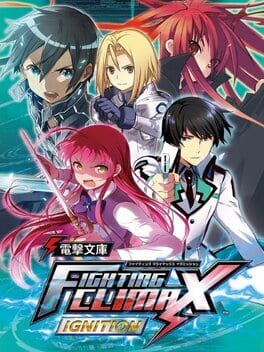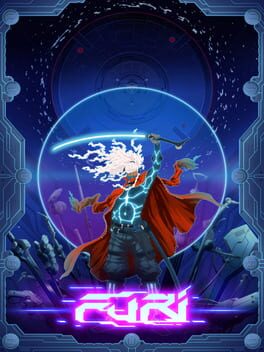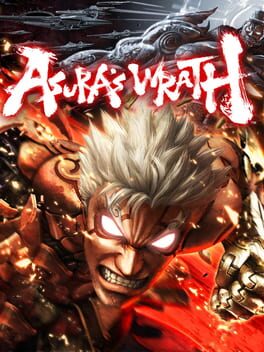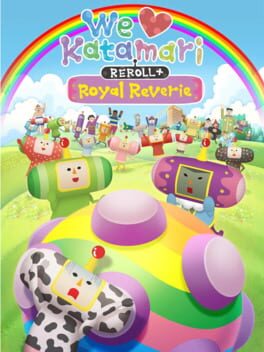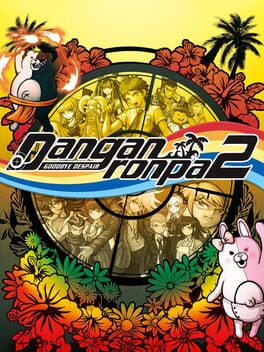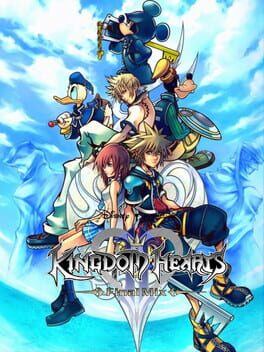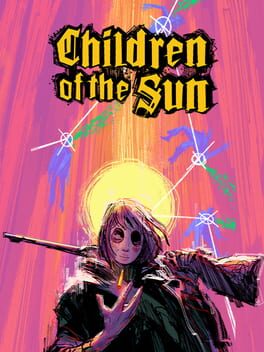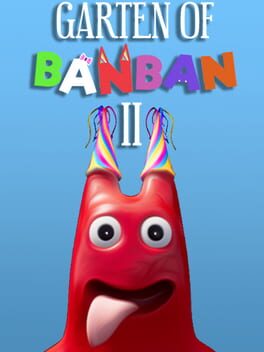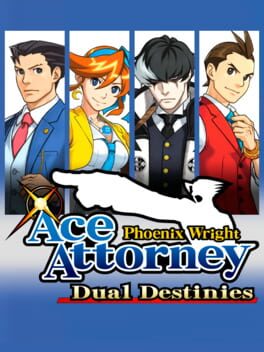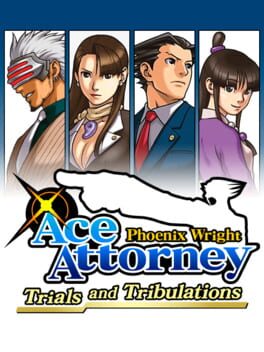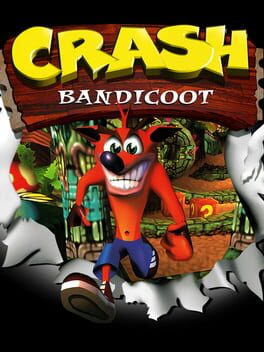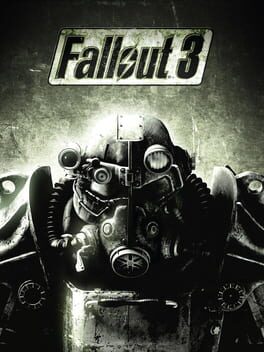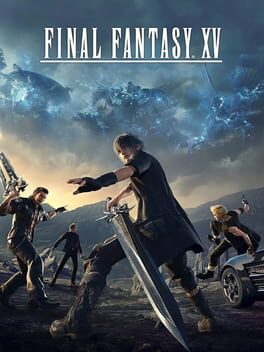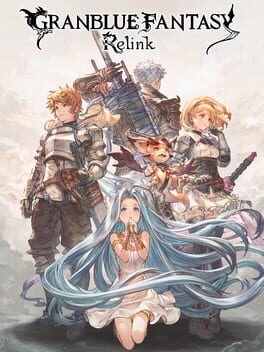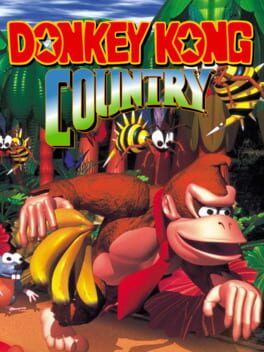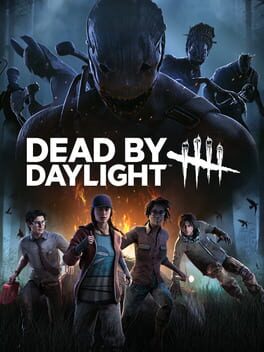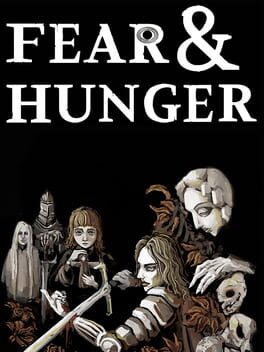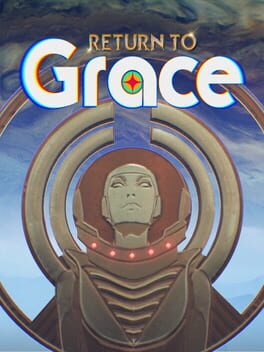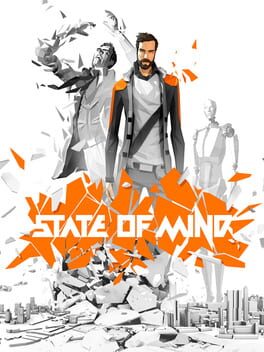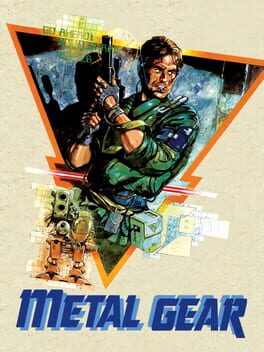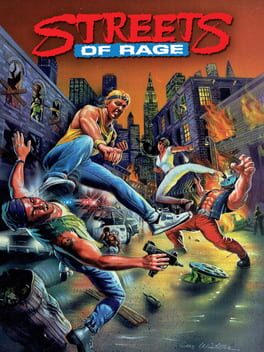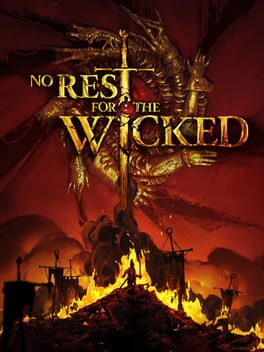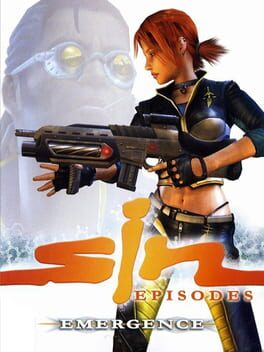Does anyone else find this endearingly cheap? Charmed by the lack of hair physics and any coherent art direction? Wistfully smiling at hands clipping into bodies during cutscenes? Squishing the cheeks of the stupendously ugly characters with nothing behind the eyes? No? Alright.
It's pretty good. If by 'good' I mean brain-destroyingly disjointed and frequently terrible on every level, that isn't the actual moment-to-moment gameplay of the world-class boss fights. Which, coincidentally, I do.
Furi, as a narrative work, does not exist. It is a collection of Resident Evil camera angles, mind-numbing diatribes poorly voice acted by Vanny from FNAF Security Breach and some funky-looking dude with one walk cycle strolling at 1 mile per hour. I know there's supposed to be a story. I know it's trying to have things like 'meaning' and 'symbolism' like other big boy indie games, but there isn't, and it doesn't. I went to town a few months back on Katana Zero's story, a similarly misguided collection of gibberish, but I was very endeared by it. The difference is in the way it's told. Even if it maintains a self-serious facade, Katana Zero presents its story with bright colours, explosions, and other ridiculous bells and whistles. It's, if nothing else, exciting. Or even just excited. Either way, there's energy. Furi has nothing of the sort; it is a deadened trod through slightly ugly backgrounds and uglier character designs while Roger Rabbit over here keeps gabbing about who knows what to an unusually rendered model of the Team Fortress 2 scout who does not care. It is the same kind of lame didacticism that YouTube comment section bait like Virtual Insanity launders to pretend it has something interesting to say. Art is never about what you say. It's about how you say it. Having meaning and making me care that you have meaning are two very different tasks. It's never a question of grasping what Furi is going for, it's only a matter of holding on. It's so uncompelling that the whole thing is rendered effervescent. Words come and go, moments of pathos come and go, story beats come and go. Like whispers in the wind. It sucks!
But there's more to the game than the auto walk button. Though, y'know. Pre-rendered cutscenes? Look into it. I might not like looking at the game or listening to it (ok, the soundtrack is pretty good, if a touch overrated), but there's one more sense that matters, and it trumps the rest of the experience. I adore how this game feels.
I'm addicted to attack patterns. When people tell me a boss fight in a game requires 'rote memorisation', I start clapping my hands like a toddler. Something about the learning process, mastery over an enemy in a game, is the peak of satisfaction to me. That's all this game has to offer me, encounter-wise—peak satisfaction.
Every boss falls somewhere in this excellent spectrum between a twin-stick bullet hell and a rhythm game hack-and-parry, with nearly any individual point on it working just as well as any other. Tekken battle vs. a lightning-fast ninja requiring snap reflexes and free jazz rhythms? Great! 5-phase Enter The Gungeon robot fight with a zillion projectiles? Awesome! Invisible sniper rifle lady who runs away from you for an hour? Fantasti- ok, that one was annoying, but still. Cool! Every fight is electrifying in completely new ways, and it's exciting to see the game continually top itself while maintaining a very consistent difficulty curve (with one kinda clever diegetic drop-off). With most boss rush games, people seem to prefer the 'epic highs and lows of high school football' approach, but I love a clean on-ramp.
And a quick aside: what a clever way to have six or seven-phase boss fights! They've cracked a way for the learning to happen without a game over. Regenerating one life after a successful phase makes mistakes much less frustrating and makes a clean run-through after a game over much more consistent. But them healing to full after you lose a life means you'll never lose the satisfaction of earning progress. You leave this game with that same ecstatic rush you do something like Sekiro, and the knowledge if you had to fight any of these bosses again right now, you could probably beat them on the first try. It's just the best sensation, and now there's much less repetition required to get you there. Even the visuals feel more satisfying in motion, the crackle of the sword reflecting your performance, the shonen slow motion parry, it all starts to sing! Man, I wish this story wasn't so empty.
(touches my hand to my sports commentator earpiece)
Oh. Wow! Really?
This just in, I'm so sorry folks, I was completely wrong. This game does have a theme. How could I have been so blind? Bugs Bunny over there is his inner voice! Like his conscience! And the whole game was actually about learning to trust your conscience! Sparkle on! Its Wednesday! Don't forget to be yourself! You were right YouTube comments, this game's story is great!
If you're thinking I'm being a bit harsh, you're right. There is nothing I like more than being really mean to a game I thoroughly enjoyed playing. But there is nothing I hate more than self-seriousness without purpose. Imagine if the terrible dialogue and one-sided monologues weren't there. Imagine if the didactic hammer swings of capital C Commentary were traded for any subtlety. Imagine if the grandiose self-seriousness was in service of Commentary, which actually had meat on its bones. Imagine if the devs of this 10/10 compilation of character action game fights didn't feel the need to impose a malformed ""indie game"" story onto their thunderous euphoria. It would be so much better! I should QA for every game. This is how we save the art form.
And yes, Virtual Insanity fucking sucks.
It's pretty good. If by 'good' I mean brain-destroyingly disjointed and frequently terrible on every level, that isn't the actual moment-to-moment gameplay of the world-class boss fights. Which, coincidentally, I do.
Furi, as a narrative work, does not exist. It is a collection of Resident Evil camera angles, mind-numbing diatribes poorly voice acted by Vanny from FNAF Security Breach and some funky-looking dude with one walk cycle strolling at 1 mile per hour. I know there's supposed to be a story. I know it's trying to have things like 'meaning' and 'symbolism' like other big boy indie games, but there isn't, and it doesn't. I went to town a few months back on Katana Zero's story, a similarly misguided collection of gibberish, but I was very endeared by it. The difference is in the way it's told. Even if it maintains a self-serious facade, Katana Zero presents its story with bright colours, explosions, and other ridiculous bells and whistles. It's, if nothing else, exciting. Or even just excited. Either way, there's energy. Furi has nothing of the sort; it is a deadened trod through slightly ugly backgrounds and uglier character designs while Roger Rabbit over here keeps gabbing about who knows what to an unusually rendered model of the Team Fortress 2 scout who does not care. It is the same kind of lame didacticism that YouTube comment section bait like Virtual Insanity launders to pretend it has something interesting to say. Art is never about what you say. It's about how you say it. Having meaning and making me care that you have meaning are two very different tasks. It's never a question of grasping what Furi is going for, it's only a matter of holding on. It's so uncompelling that the whole thing is rendered effervescent. Words come and go, moments of pathos come and go, story beats come and go. Like whispers in the wind. It sucks!
But there's more to the game than the auto walk button. Though, y'know. Pre-rendered cutscenes? Look into it. I might not like looking at the game or listening to it (ok, the soundtrack is pretty good, if a touch overrated), but there's one more sense that matters, and it trumps the rest of the experience. I adore how this game feels.
I'm addicted to attack patterns. When people tell me a boss fight in a game requires 'rote memorisation', I start clapping my hands like a toddler. Something about the learning process, mastery over an enemy in a game, is the peak of satisfaction to me. That's all this game has to offer me, encounter-wise—peak satisfaction.
Every boss falls somewhere in this excellent spectrum between a twin-stick bullet hell and a rhythm game hack-and-parry, with nearly any individual point on it working just as well as any other. Tekken battle vs. a lightning-fast ninja requiring snap reflexes and free jazz rhythms? Great! 5-phase Enter The Gungeon robot fight with a zillion projectiles? Awesome! Invisible sniper rifle lady who runs away from you for an hour? Fantasti- ok, that one was annoying, but still. Cool! Every fight is electrifying in completely new ways, and it's exciting to see the game continually top itself while maintaining a very consistent difficulty curve (with one kinda clever diegetic drop-off). With most boss rush games, people seem to prefer the 'epic highs and lows of high school football' approach, but I love a clean on-ramp.
And a quick aside: what a clever way to have six or seven-phase boss fights! They've cracked a way for the learning to happen without a game over. Regenerating one life after a successful phase makes mistakes much less frustrating and makes a clean run-through after a game over much more consistent. But them healing to full after you lose a life means you'll never lose the satisfaction of earning progress. You leave this game with that same ecstatic rush you do something like Sekiro, and the knowledge if you had to fight any of these bosses again right now, you could probably beat them on the first try. It's just the best sensation, and now there's much less repetition required to get you there. Even the visuals feel more satisfying in motion, the crackle of the sword reflecting your performance, the shonen slow motion parry, it all starts to sing! Man, I wish this story wasn't so empty.
(touches my hand to my sports commentator earpiece)
Oh. Wow! Really?
This just in, I'm so sorry folks, I was completely wrong. This game does have a theme. How could I have been so blind? Bugs Bunny over there is his inner voice! Like his conscience! And the whole game was actually about learning to trust your conscience! Sparkle on! Its Wednesday! Don't forget to be yourself! You were right YouTube comments, this game's story is great!
If you're thinking I'm being a bit harsh, you're right. There is nothing I like more than being really mean to a game I thoroughly enjoyed playing. But there is nothing I hate more than self-seriousness without purpose. Imagine if the terrible dialogue and one-sided monologues weren't there. Imagine if the didactic hammer swings of capital C Commentary were traded for any subtlety. Imagine if the grandiose self-seriousness was in service of Commentary, which actually had meat on its bones. Imagine if the devs of this 10/10 compilation of character action game fights didn't feel the need to impose a malformed ""indie game"" story onto their thunderous euphoria. It would be so much better! I should QA for every game. This is how we save the art form.
And yes, Virtual Insanity fucking sucks.
We Love Katamari is an excellent followup and companion piece to Katamari Damacy. It's more Katmari as you've come to know and love, but it adds a lot more levels and tweaks to keep things fresh.
We Love Katamari digs into the addictive arcadey nature of old school Namco games in a satisfying way. You want to replay levels to make a bigger Katamari or make the Katamari faster than before-the addition of a retry button absolutely enhances this game's replay value, it was hard to put down.
The humor is zany and weird (much like Damacy) and I love how this game digs a bit into The King of All Cosmos's backstory and relationship with his father.
Overall a lovely game that I can come back to and replay often. Highly recommend this and Katamari Damacy if you're looking for something chill and funny.
We Love Katamari digs into the addictive arcadey nature of old school Namco games in a satisfying way. You want to replay levels to make a bigger Katamari or make the Katamari faster than before-the addition of a retry button absolutely enhances this game's replay value, it was hard to put down.
The humor is zany and weird (much like Damacy) and I love how this game digs a bit into The King of All Cosmos's backstory and relationship with his father.
Overall a lovely game that I can come back to and replay often. Highly recommend this and Katamari Damacy if you're looking for something chill and funny.
Substantial improvement over Trigger Happy Havoc in nearly every way. The cast is so endearing and lovable, and much more consistently written. Even people who I disliked or didn't care for at the beginning ending up completely changing my perspective of them. When the murders eventually start happening, it genuinely hurts to see a character you've gotten to know so well either die or be found out as the culprit - there's some real emotional gut-punches to be found that just aren't there in the prequel. The gimmicks within investigation periods are also brilliant; the separate game to find out the culprit, the funhouse, the main idea of Case 5, it all feels really experimental and it definitely paid off, every case (excluding 3) is superbly written and so damn engaging. The trials are much more involving as well; attacking with the correct piece of evidence and figuring out the culprit is actually more challenging since you don't have someone like Kyoko giving away all the hints, the addition of agreeing with someone in Nonstop Debate is also a clever addition. The Run-2/3-esque Logic Dive is fun as hell to navigate. The truth blades... kind of fucking suck and feel redundant, I would much rather just play another Nonstop Debate, and well Hangman's Gambit will just always be complete shit - but somehow they made it worse here. Really the only other aspect that THH does better in, is the setting and atmopshere. For what it's worth, Goodbye Despair is a near perfect sequel.
Ocarina of Time is the quintessential videogame. The influence of OoT over the medium is immeasurable and would grant it a place in history by itself. However, the game is also damn good, and holds up to today's standards.
OoT is a masterclass in both game design and storytelling and lays the foundation to the modern videogame. The item-dungeon loop, the quasi-open world, the hub areas integrated into the worldbuilding aspects and the time-related plot twists and implementation of quests and sidequests integrating the game's main gimmick in such a natural manner were basically the template for most major game created ever since.
The use of soundtrack in ambience and storytelling is also extremely inspired and helps the game in its longstanding legacy. The musical and audio motif introduced in OoT are, in fact, one of the more important factors in the series identity up to the most recent entries.
The Kingdom of Hyrule feels alive, which is a feat and a half considering the technical hurdles of the time. The clever use of hub locations contrasting with the ample Hyrule Fields makes the populated areas feel that more important and full of points of interest.
Locations are, in fact, the most important part of the storytelling in OoT. The dungeons all have some significance that is alluded to but explicitly told - a not pioneering, but definetly daring move at the time. And the identity of the locales merges with the level design, capabilities acquired and soundtrack of the dungeons in a manner seldom replicated from then to now.
The UI and UX factors of the game are harder to evaluate. The field has developed tremendously and OoT utilized dated conventions - which still work, as most average gamers even today can navigate without any issues - but the use of c-buttons to alleviate the clutter of so many tools was a functional and perfectly able solution. The menuing can get quite annoying, especially during areas where the boots are used frequently. The d-pad should-ve been better utilized - and this was one of the first QoL solutions implemented by current-day modders. Hindsight is 20-20, however. During its day, there were few 3D games which utilized solutions as effectively as OoT - the Z-targeting was one of the greatest legacies for gameplay UX, and is now ubiuitous because of the great implementation made by OoT.
The story is an apt retelling of the Chosen One trope. While not groundbreaking as a general motif, the time-travelling twist is extremely effective in its implementation. Link is a blank slate and does not impede the player immersion into the story being told. That is very much a good thing, and contributes to the longevity of the game's enjoyability and it's perpetuity in history.
While being prey to the curse of the early 3D graphics, it is one of the least offensive polygons of the era. The artstyle is fantastical enough to make the graphics not too dated for today's standards - there is a kind of charm in them. Of course, in it's heyday OoT was considered an impressive technical feat. There were few games of it's scope back then and the graphical fidelity was amongst the top of its class, especially considering the N64 library - and not using pre-rendered graphics as much and as overtly as the jRPGs of the era. It's use of pre-rendered graphics was, in fact, subtle and melded well with the real-time polygonal graphics. The camera is generally acceptable, but it's finnicky sometimes - a problem that was much more felt in Majora's Mask -, an issue of the times. The ability to move the camera in the way OoT did, however, was extremely innovative.
All in all, OoT is one of those rare games that can be considered a true masterpiece. It is the template for all current open-world action-adventure games and is the starting point to videogames being taken seriously as a medium. It holds up well as an entertainment piece and is legendary as turning point in videogame history.
OoT is a masterclass in both game design and storytelling and lays the foundation to the modern videogame. The item-dungeon loop, the quasi-open world, the hub areas integrated into the worldbuilding aspects and the time-related plot twists and implementation of quests and sidequests integrating the game's main gimmick in such a natural manner were basically the template for most major game created ever since.
The use of soundtrack in ambience and storytelling is also extremely inspired and helps the game in its longstanding legacy. The musical and audio motif introduced in OoT are, in fact, one of the more important factors in the series identity up to the most recent entries.
The Kingdom of Hyrule feels alive, which is a feat and a half considering the technical hurdles of the time. The clever use of hub locations contrasting with the ample Hyrule Fields makes the populated areas feel that more important and full of points of interest.
Locations are, in fact, the most important part of the storytelling in OoT. The dungeons all have some significance that is alluded to but explicitly told - a not pioneering, but definetly daring move at the time. And the identity of the locales merges with the level design, capabilities acquired and soundtrack of the dungeons in a manner seldom replicated from then to now.
The UI and UX factors of the game are harder to evaluate. The field has developed tremendously and OoT utilized dated conventions - which still work, as most average gamers even today can navigate without any issues - but the use of c-buttons to alleviate the clutter of so many tools was a functional and perfectly able solution. The menuing can get quite annoying, especially during areas where the boots are used frequently. The d-pad should-ve been better utilized - and this was one of the first QoL solutions implemented by current-day modders. Hindsight is 20-20, however. During its day, there were few 3D games which utilized solutions as effectively as OoT - the Z-targeting was one of the greatest legacies for gameplay UX, and is now ubiuitous because of the great implementation made by OoT.
The story is an apt retelling of the Chosen One trope. While not groundbreaking as a general motif, the time-travelling twist is extremely effective in its implementation. Link is a blank slate and does not impede the player immersion into the story being told. That is very much a good thing, and contributes to the longevity of the game's enjoyability and it's perpetuity in history.
While being prey to the curse of the early 3D graphics, it is one of the least offensive polygons of the era. The artstyle is fantastical enough to make the graphics not too dated for today's standards - there is a kind of charm in them. Of course, in it's heyday OoT was considered an impressive technical feat. There were few games of it's scope back then and the graphical fidelity was amongst the top of its class, especially considering the N64 library - and not using pre-rendered graphics as much and as overtly as the jRPGs of the era. It's use of pre-rendered graphics was, in fact, subtle and melded well with the real-time polygonal graphics. The camera is generally acceptable, but it's finnicky sometimes - a problem that was much more felt in Majora's Mask -, an issue of the times. The ability to move the camera in the way OoT did, however, was extremely innovative.
All in all, OoT is one of those rare games that can be considered a true masterpiece. It is the template for all current open-world action-adventure games and is the starting point to videogames being taken seriously as a medium. It holds up well as an entertainment piece and is legendary as turning point in videogame history.
Children of the Sun's hyper-stylized visuals and visceral soundscape serve as a great juxtaposition to the surprisingly methodical puzzle-solving; the likes of which do a fantastic job of encouraging creativity and improvisation from the player. While a couple of the more challenging levels occasionally felt a bit frustrating due to the amount of trial and error they required, they were well worth persevering through as the satisfaction of finally discovering that perfect route was near unmatched.
Below is a much too long, analytical, and spoiler-free review (does spoil stuff to do with Phoenix in game 4 though). If you just want the TLDR, only read the last two paragraphs and know you’ve probably made the correct choice. Don’t question the ramblings of a mad man driven to passionately write on experience with an individual art piece, but feel free to question my sanity
I was planning on reviewing Dual Destinies in the same format as I had for the other Phoenix Wright games: giving short paragraphs on gameplay experience, overall story, and an individual rating with quick comments for each case. I really loved this game when I had previously played it, way back when I was young and dumb enough to replay visual novels out of boredom, and expected to love this game in a similar way but with added perspective following gained experience analysing games that was learnt through (a LOT of) trial and error. After playing through the first two cases my expectations were disappointed, with the game itself being capable of only a surface level analysis due to the 'talk down' entry-level approach this game took, seemingly assuming new players of the series would be the majority audience (to be fair, this was the first Phoenix Wright game I ever played). I was beginning to realise exactly how I had changed over time, evolved in my capability to understand narrative and textually engage with art, to a point where it seemed I wasn’t having fun with the game anymore. My perceived truth of this game’s brilliance was tested (working backwards from an expected outcome with my experience wasn’t matching what I was actually experiencing while playing (pay attention, this pattern will return later)), the ideological themes weren’t being enacted as I’d expected, and the completeness and correctness of the overall storytelling wasn’t present (especially in the context of the Apollo Justice Trilogy, which is the version of the game I played). I looked forward to case 3 (Turnabout Academy) as I remembered it being exceptional for it’s message about a general correct moral philosophy to act with integrity and a more mature ideologically-charged plot by sinister actors, with the gimmick of a murder following a fake-murder trial’s script. At first the third case seemed to follow the same surface-level uninteresting steps as the first two cases in this game, being okay with mostly copying Apollo Justice’s case 3 (Turnabout Serenade), but by the end I found my perspective shifted back into understanding the surprisingly subtle genius permeating the entire game, and recontextualising my perception of this game and how it fits into where it does in the overall series’ story.
First, I want to touch on how the Phoenix Wright games are presented in the visual novel format, and how this presentation allows for certain methods of presenting information to the player, for either the purposes of storytelling or solving the case. The Ace Attorney games all follow a formulas to varying degrees which I tend to think of hierarchically;
- The overall case formatting (investigation -> trial -> repeat) involving gathering and presenting information in a scripted search for truth,
- Duelling perspective trials starting with the prosecution’s argument cornering the defence as they slowly unravel threads of logic into concrete proof through reason and evidence,
- The witness testimony leading into cross-examinations presenting (typically) inconsistent information which you will examine to gain a new common understanding,
as some broader to specific common examples. There are also more ‘gimmick’ context-specific formulas such as Phoenix’s psyche-locks, Apollo’s bracelet, and Athena’s psychotherapy, and these create expected seamless and streamlined modes of communicating information to the player. The means of enacting these formulas is by;
- Presenting text dialogue through boxes at the bottom of the screen
- Descriptions and images of objects and reports collected as evidence which is accessible at any time
- And invariable scripted animations.
Pacing will obviously become a problem with the methods the game uses to tell it’s stories, as it usually is in any interactive medium where a person can simply stop at any time, however this formula is surprisingly easy for the developers to pace so that the player usually follows an expected understanding of the case and story. The only way to get information is by ‘moving’ through the story, scenes, and interactions presented, therefore you mustn’t have more information than what is currently accessible to you, while scripted sequences are naturally intended to be paced as presented. As one revelation shocks you, your mind racing to understand the consequences as the dialogue box simply sits there waiting, the game is very smart to follow that up with another revelation or surprise which won’t give you time to think or react in scripted segments. The engagement you experience with the game changes throughout play between these two modes and simultaneously allows you to pace yourself to understand thematic context of what is being presented while still being able to rush you with information you may need to miss or digest in unison, irrespective of which method it uses to do so and at which hierarchical degree the game performs it at. This lets you really feel the messages and flow of the game to follow the logical puzzles presented literally and narratively, which the game very expertly switches up in the few times it breaks it’s own formula (in meaningful ways unique to these methods, that are mostly all spoilers). What’s really interesting is the two new additions to the base formula introduced in this game actively ruin the pacing and tonality of the established storytelling methods. The anime cutscenes, despite the fact it is a switch up on the formula, removes this unique contextual method of storytelling for a more generic cinematic approach adhering to scripted convention in ways which clash with the game’s methods. The revisualisations additionally ‘talk down’ to the player, removing the player’s ability to figure out an element of the mystery on their own, while simultaneously reducing the massive (commonly two answer) multiple choice of presenting evidence during trial to unengaging simple repeating 2-3 choices.
I hold the understanding that humans don’t actually follow logic through rationalization (actually thinking through the logic in their mind), and that instead we simulate logic through experienced and connected emotional reactions to patterns or simplified memorised conjugate reactions to prompts. This understanding may explain why some people have trouble with certain subjects in education, make common logical errors, fall for logical fallacies, and can be persuaded under a logical pretence through appeals to emotion. This game’s emo inmate prosecutor, Simon Blackquill, perfectly illustrates this last idea in his ‘psychological manipulations’ (commonly they're just logical fallacies or elevating authority over the judge) as he twists logical argument into emotional manipulations of the legal professionals and witnesses to simply accept his perspective. The signature method for argument used by Blackquill is control through manipulation, as he does not care for changing his argument based on new information but instead enforces a perceived ‘final truth’ in the form of a logical trap to convince you there is no alternative interpretation of the facts (despite this being a Phoenix Wright game where you must overturn the prosecution’s argument). Blackquill works backwards from perceived ‘absolute final truth’ to build his case (an end he uses to justify the means of getting there), and this often leads to his incorrect expectation of a ‘final truth’ being disproven by the defence during court (almost like my expectations of this game…). This is in direct contrast to the prosecuting philosophy of dispelling all doubt about the defendant’s guilt (against the opposing defence’s belief in their client’s innocence) to find the unbiased truth of the case, a philosophy which is held by a majority of the other prosecutors in these games. This clear disregard for a proper method of reasoning, and further disregard for the purpose of argument in court, represents the public’s opinion of the corrupt lawyer working under the dark age of the law in this world, with the strong example of misusing psychological practises by manipulating the human legal professionals enacting logical argument. Add in blatant assault through his hawk Taka scratching at people’s faces, intentionally missing attacks with concealed weaponry to shut people up, and breaking his shackles to remind everyone who’s in control of the situation, the courtroom becomes a power struggle held by the prosecution for whoever controls the court’s opinion. In contrast, the third protagonist of Dual Destinies, Athena Cykes, is a straight out of law school graduate who only follows proper methods and means of argument, despite her diverse over-the-top emotional states and alternative method of cross-examination through Widget’s Mood Matrix. Athena’s view on psychology in the courtroom is for it to be used alongside witness testimony to help guide the court towards a correct understanding of the facts of the case, as exemplified through her ‘therapy sessions’ constructing a mood matrix to accompany testimony, and to help people under immense turmoil recover to be able to aid in the pursuit of truth. Since the understanding is that humans experience logic through emotion, Athena represents an attempt to better understand these emotions to help enact logic or pursue truth in witness’ perceptions/perspectives. Athena believes the act of lawyering to be a collaborative process of discovering truth from the beginning of the story, however only truly understands the correct methods and means to contribute to this process throughout the events of the game, which is why she is able to escape Blackquill’s traps so easily and pursue truth despite lacking the ‘power’ in Blackquill’s court, but can't handle fears of inability and failure.
Speaking of, Phoenix Wright following his own trilogy has reached a point of mastery in the legal world and found his way into owning a small law firm (despite his best efforts) with two rookie lawyers who both now are learning their way in pursuing truth through the legal system. Despite how Phoenix had a mentor in Mia Fey in help him learn the basics of lawyering, he does not do the same for his apprentices in this game. In the 4th game, Phoenix is actively using Apollo as a bright-eyed defence lawyer recently out of a job and with a special perception power to further Phoenix’s own half-virtuous retribution, and thus the advice he gives is very lacking in substance and specific to the events of the game, especially with his new pessimism thrown in to his conversations. Now having recently reacquired his attorney’s badge, believing once again in the righteousness of the justice system and determined to put an end to the dark age of the law he himself helped permeate, it would make sense that he’d want to teach his associate attorneys his way of defending clients, eventually growing to figure out that Apollo and Athena would need to figure out their own way of seeking truth throughout the game. This is touched on in the special case (Turnabout Reclaimed), with Phoenix acting somewhat like a lax commandeering boss offloading all the unwanted and ‘un-fun’ work onto Apollo now that Phoenix can fight his own court cases, and exactly 8 lines out of some thousands where he remembers why he gives the advice he does. However the main game never does this, the most we textually get is Phoenix offscreen before the events of the game telling Athena that ‘the worst of times is when lawyers have to force their biggest smiles’. It seems like this theme of mentorship and evolving practice was a larger theme in the game that just got cut for some reason, as: certain pieces of dialogue feel unended between Phoenix and his workers, circumstances created in the story aren’t naturally leading into reflection on how the characters got there, they lean heavily into how the court system itself will escape the dark age of the law but not the practices the main characters take to achieve this, the characters being able to trust each other despite ignoring the distrust Phoenix created in game 4, and Apollo’s entire arc is centred around his extreme alternative method for finding the truth. Phoenix Wright always prioritises trusting his client no matter the situation, and Apollo Justice learns throughout the game how to follow that practice while accepting reasonable doubt in that trust into his work (which would be much more interesting if Apollo held a bit of a grudge against Phoenix for using him in the events of the 4th game, but he never actually correctly mentors Apollo so that grudge, if it existed, would never disappear). The perspective on the legal system held by the series until Dual Destinies (to have two opposing perspectives reason their understanding until there can be no more argument and an objective truth is found), where you need to be able to trust your clients to act as a successful defence attorney with integrity until that trust is broken, however Apollo accepts the prosecutor’s perspective of questioning every detail of the case to be able to guarantee the truth is found and presents this as a correct alternative method to be an amazing defence lawyer. Finally, the main character of the second trilogy (technically not, but his name’s on the trilogy) learns his unique method for being a defence attorney and is ready to find his own way, however his path to get there is tainted with the corruption standard in the legal system.
Now to get to the real meat of this game over these next two paragraphs, and what it represents for both the Apollo Justice Trilogy and fans discussing it online. The ‘dark age of the law’ being properly introduced, as the Wright Anything Agency begins to build itself back into a law firm, cleanly follows on from the callous disregard for lawful practices from the 4th game. The corruption more blatantly on display following a real conviction of a culprit in a practice trial for a new court system, all organised by Phoenix by the way, transitions a little more into the background and we get a peek at the roots of the more general corrupting practices that take place. Major overarching themes for the trilogy (established in Apollo Justice) become less subtextual and further abstracted into addressable ideas that the story can analyse and be combated or accepted, which are reiterated and evolved in Spirit of Justice. A returning convict prosecutor who represents the distrust the public has with the legal system (largely due to how they were convicted) is deemed as one of the two origins of this corruption, alongside Phoenix himself who basically all but admits his crime of forging evidence (as well as illegal surveillance) during the 4th case of the 4th game. These two polar opposite lawyers each made one mistake which ended up defining their legal system for 7 long years, and the standard practice became to win no matter what. The 3rd case (Turnabout Academy) revolves around one philosophy that perpetrates these acts, being that "the end justifies the means" where doing stuff like forging evidence is fine as long as you don't get caught (aka use any means possible to achieve the ideal end result). Each of Blackquill’s psychological traps introduced in the previous case follow this philosophy, as he doesn't care about searching for the truth but instead justifies his idea of the truth through fitting facts to his perception: an end he uses to justify the means of getting there. However, just as the presented righteous philosophy states "the means justifies the end", each time you escape one of Blackquill’s traps you do so because you took the correct exhaustive path to get there, often finding the facts contradict Blackquill's ‘truth’. For the second time ever in the series, the game takes a hard stance against this ideology and reasons the purposes of acting honourably with integrity in pursuing justice (the other time was the final case of Justice for All, ironically enough). However, the ‘dark age of the law’ is a powerful and difficult standard to remove for those who follow it, as it’s easy to abuse for deceit or personal gain, and the game takes the time to fully dismantle it in an ideological war for the future of the legal system. It reframes every aspect of the game you played, and approaching the game with this mindset leads to finding the purpose in those seemingly Phoenix Wright classic stock-standard first 2 cases of the game. Seeing the darkened moralistic debate silently occur across the wacky goofy Phoenix Wright hijinks is brilliant, but it’s also too bad it’s undercut by retreading and undoing the previous game’s steps.
To be fair, Apollo Justice wasn’t as silly goofy with classic hijinks, largely due to it’s attempts to create a distinct new Ace Attorney story in a darker context. It acts as a sort of generational sequel, continuing on from the original trilogy and the investigations games featuring an original series of characters and how they deal with similar experiences to the previous games, and this game really does not want to do any of that. The new Phoenix Wright team following Shu Takumi’s absence, while he worked on PWvsPL and TGAA:A, seem to be silently screaming through their actions that they really didn’t wanna deal with breaking narrative formula and really wanted to add another Phoenix Wright story. Phoenix Wright gets his badge back and wrenches control of the trilogy away from Apollo so he can repeat lessons learnt in his own trilogy, Apollo gets hard sidelined into 3rd character in the story after Athena, and Apollo’s own journey is completed in the length of one case (despite being talked about for most of the game). Sure, usually the Phoenix Wright formula involves some first case setup, into nothing happening for 2 cases, ending with one big old explosive ending to justify changes in perspective or identities, however you don’t have to treat a formulaic pattern in design as hard-set rules. Apollo Justice’s own game had a very subtle but clear direction where that formula was changing, with one large interconnected story sectioned into multiple cases across the game, but this game seems against this idea being implemented as the main plot as instead it's relegated to the C-plot involving Athena's trauma (which is ironic, given they go back to the massive overarching plot again in Spirit of Justice). Sure, you could argue ‘the dark age of the law’ is consistently foreshadowed in the previous cases, however this is again done the same as in Apollo Justice with Phoenix’s ‘forged evidence’ mystery. I’m not arguing for radical change, I’m simply offput by this game’s safety net of following formulaic storytelling when the story being told is really compelling, and could be even more so in moments when the pacing switches up. It feels like this game is content to simply do the motions in terms of especially the case structure, probably because it’s familiar and comforting. Speaking of, I honestly don’t even want the exact same Phoenix Wright to immediately come back in this game, I’d prefer if he had to earn his way into a changed perspective on the law that he could show in solving the final case. Nostalgia for the way things were should drive you to iterate on previous works, not copy-paste Phoenix from game 3 into game 5 with no changes (especially when Phoenix from game 4 contradicts that character (for good reasons explained in game 4)). This return to form never ruined my engagement with the game in any meaningful way, just added unnecessary friction into the experience I assume they intended to present.
So speaking of returning to form, I’m gonna list out all the cases and any notable comments like I usually do for these games’ reviews. I also found that there were unique themes that existed only for individual cases that additionally contribute towards the overarching ‘dark age of the law’ throughout the entire game, and so I have added each of these themes after the case name to help highlight exactly what I found.
- Case 1, Turnabout Countdown (Gluttony): Destructive over-indulgence with intent of continuing addicting behaviour. This case is way too eager to over-explain or hand-hold you through everything, and weirdly is the most anime influenced case in the game. Low tier 1st case that I’d put around the same quality as game 2’s 1st case
- Case 2, The Monstrous Turnabout (Greed): Overpowering desire to obtain unnecessary amounts of wealth or power. Pretty solid forgettable mid-game case that just kinda ends up being a lot of setup with little to no execution. Pretty good though, presenting a classic Phoenix Wright mystery while defining what this game’s gonna be like in subtle ways
- Case 3, Turnabout Academy (Pride): Ego defeating rationality to control action, defined by a dictatorial belief that you are right. While retreading similar steps to game 4’s case 3 (Turnabout Serenade), this game manages to quickly walk that path before continuing on it’s own new path through a much more interesting territory. The focus isn’t on the mystery presented but instead on the ideological conflict at play at Themis Legal, and it’s so engaging to follow along and participate in that debate. Definitely my favourite case of this game, 2nd favourite of the whole series after game 2 case 4
- Case 4, The Cosmic Turnabout (Sloth): A deliberate lack of action, especially when that laziness perpetrates deterioration. Honestly, it’s a strange case in a good way. The case is defined by what it sets up for what comes after it (I usually think of this case and case 5 as being one really big case), but still presents it’s own mystery in a largely complete and satisfying way. It really encompasses Takumi’s legacy of always adding more information
- Case 5, Turnabout for Tomorrow (Wrath): Complete and all-encompassing rage often targeted at someone or something that the perpetrator deems to have wronged them. Pretty solid callbacks and continuations of previous games, absolutely amazing completion of current game's unique stories and themes. We really get the full experience and justification for Athena’s unique ability pretty late in the game, but I love me some evolving gameplay. This case is an amazing conclusion, justifying all of the game in one giant war to end the dark age of the law and seek peace with opposing (and synergising) dual destinies
- Case 6, Turnabout Reclaimed (Envy): A sinister want to obtain qualities of life that others have, usually jealously resenting the life others enjoy. Despite the fact this is basically case 2.5, it does a better job of creating a complete story and interesting mystery with the same moral lesson as case 2. You really get the ‘normal case’ in Dual Destinies’ style with clean keyframed animations that can’t be done easily in 2D, and a further understanding for Blackquill’s disregarding expectation for corruption in the legal system. Don’t get me wrong, it’s not a great case, that first day drags and the mystery seems much more focused on the aquarium than the actual murder.
There is so much this game achieves to be in spite of it’s strict adherence to patterns and ideas set forth by the games that came before it. Most fans tend to find this game lacklustre and inherently contradictory as a Phoenix Wright game, which I do agree that it fails to logically follow from game 4, however I argue these concessions were made to be able to present such a (weirdly shonen) inspection of lawful practices. I usually write reviews in one sitting directly after finishing the game, as I find experiences with games and games themselves to be things of passion (despite how sterile they can be in certain contexts), however this review took me a solid 2-3 weeks of drafting and editing due to how enthralling and cerebral it’s story is presented; I wanted to match the experience I had playing the game despite the review’s outcome being less of a narrative journey. Also it’s a visual novel, I think there’s a higher chance I can get away with writing an essay as a review for that genre. There were even things I left out due to length and lack of my own knowledge, like:
- The graphical challenge presenting expected mechanics while jumping to 3D
- Why certain mechanics may have been cut for time (like fingerprinting)
- Apollo receiving yet another backstory (I might get into that for my review on Spirit of Justice)
- Too many characters leading to Trucy being hard sidelined
- How they use discrete animations to represent the continuous spectrum of characters’ emotions, especially in the context of Athena’s power
- Using classic Phoenix Wright comedy in the more mature themes (and even how Justice for All’s last case didn't do that)
- Why do the Phoenix Wright writers love making time intervals of 7 years for corruption to propagate
- The DLC being so disconnected from the main game, and reasons the DLC may even exist in the first place
- Phoenix’s new relationships at the Wright Anything Agency and old relationships with the Fey family
This is an amazing game that I found you need a certain mindset to perceive it as such, especially during the first 2 cases. In terms of a recommendation, I’d say it defines the place it takes in the Apollo Justice trilogy and shouldn’t be skipped if you haven't played it before, however it’s definitely worth an individual playthrough even as your first Phoenix Wright game (might even be more enjoyable that way given the super straight-forward first 2 cases). I understand that most people who already don’t like the game won’t be reading this sentence. If nothing else I hope that I successfully argued how fervently Blackquill-pilled I am.
Really makes you feel like reincarnate correctness, the conjoined fates of solar magistrate and wisdom amped
I was planning on reviewing Dual Destinies in the same format as I had for the other Phoenix Wright games: giving short paragraphs on gameplay experience, overall story, and an individual rating with quick comments for each case. I really loved this game when I had previously played it, way back when I was young and dumb enough to replay visual novels out of boredom, and expected to love this game in a similar way but with added perspective following gained experience analysing games that was learnt through (a LOT of) trial and error. After playing through the first two cases my expectations were disappointed, with the game itself being capable of only a surface level analysis due to the 'talk down' entry-level approach this game took, seemingly assuming new players of the series would be the majority audience (to be fair, this was the first Phoenix Wright game I ever played). I was beginning to realise exactly how I had changed over time, evolved in my capability to understand narrative and textually engage with art, to a point where it seemed I wasn’t having fun with the game anymore. My perceived truth of this game’s brilliance was tested (working backwards from an expected outcome with my experience wasn’t matching what I was actually experiencing while playing (pay attention, this pattern will return later)), the ideological themes weren’t being enacted as I’d expected, and the completeness and correctness of the overall storytelling wasn’t present (especially in the context of the Apollo Justice Trilogy, which is the version of the game I played). I looked forward to case 3 (Turnabout Academy) as I remembered it being exceptional for it’s message about a general correct moral philosophy to act with integrity and a more mature ideologically-charged plot by sinister actors, with the gimmick of a murder following a fake-murder trial’s script. At first the third case seemed to follow the same surface-level uninteresting steps as the first two cases in this game, being okay with mostly copying Apollo Justice’s case 3 (Turnabout Serenade), but by the end I found my perspective shifted back into understanding the surprisingly subtle genius permeating the entire game, and recontextualising my perception of this game and how it fits into where it does in the overall series’ story.
First, I want to touch on how the Phoenix Wright games are presented in the visual novel format, and how this presentation allows for certain methods of presenting information to the player, for either the purposes of storytelling or solving the case. The Ace Attorney games all follow a formulas to varying degrees which I tend to think of hierarchically;
- The overall case formatting (investigation -> trial -> repeat) involving gathering and presenting information in a scripted search for truth,
- Duelling perspective trials starting with the prosecution’s argument cornering the defence as they slowly unravel threads of logic into concrete proof through reason and evidence,
- The witness testimony leading into cross-examinations presenting (typically) inconsistent information which you will examine to gain a new common understanding,
as some broader to specific common examples. There are also more ‘gimmick’ context-specific formulas such as Phoenix’s psyche-locks, Apollo’s bracelet, and Athena’s psychotherapy, and these create expected seamless and streamlined modes of communicating information to the player. The means of enacting these formulas is by;
- Presenting text dialogue through boxes at the bottom of the screen
- Descriptions and images of objects and reports collected as evidence which is accessible at any time
- And invariable scripted animations.
Pacing will obviously become a problem with the methods the game uses to tell it’s stories, as it usually is in any interactive medium where a person can simply stop at any time, however this formula is surprisingly easy for the developers to pace so that the player usually follows an expected understanding of the case and story. The only way to get information is by ‘moving’ through the story, scenes, and interactions presented, therefore you mustn’t have more information than what is currently accessible to you, while scripted sequences are naturally intended to be paced as presented. As one revelation shocks you, your mind racing to understand the consequences as the dialogue box simply sits there waiting, the game is very smart to follow that up with another revelation or surprise which won’t give you time to think or react in scripted segments. The engagement you experience with the game changes throughout play between these two modes and simultaneously allows you to pace yourself to understand thematic context of what is being presented while still being able to rush you with information you may need to miss or digest in unison, irrespective of which method it uses to do so and at which hierarchical degree the game performs it at. This lets you really feel the messages and flow of the game to follow the logical puzzles presented literally and narratively, which the game very expertly switches up in the few times it breaks it’s own formula (in meaningful ways unique to these methods, that are mostly all spoilers). What’s really interesting is the two new additions to the base formula introduced in this game actively ruin the pacing and tonality of the established storytelling methods. The anime cutscenes, despite the fact it is a switch up on the formula, removes this unique contextual method of storytelling for a more generic cinematic approach adhering to scripted convention in ways which clash with the game’s methods. The revisualisations additionally ‘talk down’ to the player, removing the player’s ability to figure out an element of the mystery on their own, while simultaneously reducing the massive (commonly two answer) multiple choice of presenting evidence during trial to unengaging simple repeating 2-3 choices.
I hold the understanding that humans don’t actually follow logic through rationalization (actually thinking through the logic in their mind), and that instead we simulate logic through experienced and connected emotional reactions to patterns or simplified memorised conjugate reactions to prompts. This understanding may explain why some people have trouble with certain subjects in education, make common logical errors, fall for logical fallacies, and can be persuaded under a logical pretence through appeals to emotion. This game’s emo inmate prosecutor, Simon Blackquill, perfectly illustrates this last idea in his ‘psychological manipulations’ (commonly they're just logical fallacies or elevating authority over the judge) as he twists logical argument into emotional manipulations of the legal professionals and witnesses to simply accept his perspective. The signature method for argument used by Blackquill is control through manipulation, as he does not care for changing his argument based on new information but instead enforces a perceived ‘final truth’ in the form of a logical trap to convince you there is no alternative interpretation of the facts (despite this being a Phoenix Wright game where you must overturn the prosecution’s argument). Blackquill works backwards from perceived ‘absolute final truth’ to build his case (an end he uses to justify the means of getting there), and this often leads to his incorrect expectation of a ‘final truth’ being disproven by the defence during court (almost like my expectations of this game…). This is in direct contrast to the prosecuting philosophy of dispelling all doubt about the defendant’s guilt (against the opposing defence’s belief in their client’s innocence) to find the unbiased truth of the case, a philosophy which is held by a majority of the other prosecutors in these games. This clear disregard for a proper method of reasoning, and further disregard for the purpose of argument in court, represents the public’s opinion of the corrupt lawyer working under the dark age of the law in this world, with the strong example of misusing psychological practises by manipulating the human legal professionals enacting logical argument. Add in blatant assault through his hawk Taka scratching at people’s faces, intentionally missing attacks with concealed weaponry to shut people up, and breaking his shackles to remind everyone who’s in control of the situation, the courtroom becomes a power struggle held by the prosecution for whoever controls the court’s opinion. In contrast, the third protagonist of Dual Destinies, Athena Cykes, is a straight out of law school graduate who only follows proper methods and means of argument, despite her diverse over-the-top emotional states and alternative method of cross-examination through Widget’s Mood Matrix. Athena’s view on psychology in the courtroom is for it to be used alongside witness testimony to help guide the court towards a correct understanding of the facts of the case, as exemplified through her ‘therapy sessions’ constructing a mood matrix to accompany testimony, and to help people under immense turmoil recover to be able to aid in the pursuit of truth. Since the understanding is that humans experience logic through emotion, Athena represents an attempt to better understand these emotions to help enact logic or pursue truth in witness’ perceptions/perspectives. Athena believes the act of lawyering to be a collaborative process of discovering truth from the beginning of the story, however only truly understands the correct methods and means to contribute to this process throughout the events of the game, which is why she is able to escape Blackquill’s traps so easily and pursue truth despite lacking the ‘power’ in Blackquill’s court, but can't handle fears of inability and failure.
Speaking of, Phoenix Wright following his own trilogy has reached a point of mastery in the legal world and found his way into owning a small law firm (despite his best efforts) with two rookie lawyers who both now are learning their way in pursuing truth through the legal system. Despite how Phoenix had a mentor in Mia Fey in help him learn the basics of lawyering, he does not do the same for his apprentices in this game. In the 4th game, Phoenix is actively using Apollo as a bright-eyed defence lawyer recently out of a job and with a special perception power to further Phoenix’s own half-virtuous retribution, and thus the advice he gives is very lacking in substance and specific to the events of the game, especially with his new pessimism thrown in to his conversations. Now having recently reacquired his attorney’s badge, believing once again in the righteousness of the justice system and determined to put an end to the dark age of the law he himself helped permeate, it would make sense that he’d want to teach his associate attorneys his way of defending clients, eventually growing to figure out that Apollo and Athena would need to figure out their own way of seeking truth throughout the game. This is touched on in the special case (Turnabout Reclaimed), with Phoenix acting somewhat like a lax commandeering boss offloading all the unwanted and ‘un-fun’ work onto Apollo now that Phoenix can fight his own court cases, and exactly 8 lines out of some thousands where he remembers why he gives the advice he does. However the main game never does this, the most we textually get is Phoenix offscreen before the events of the game telling Athena that ‘the worst of times is when lawyers have to force their biggest smiles’. It seems like this theme of mentorship and evolving practice was a larger theme in the game that just got cut for some reason, as: certain pieces of dialogue feel unended between Phoenix and his workers, circumstances created in the story aren’t naturally leading into reflection on how the characters got there, they lean heavily into how the court system itself will escape the dark age of the law but not the practices the main characters take to achieve this, the characters being able to trust each other despite ignoring the distrust Phoenix created in game 4, and Apollo’s entire arc is centred around his extreme alternative method for finding the truth. Phoenix Wright always prioritises trusting his client no matter the situation, and Apollo Justice learns throughout the game how to follow that practice while accepting reasonable doubt in that trust into his work (which would be much more interesting if Apollo held a bit of a grudge against Phoenix for using him in the events of the 4th game, but he never actually correctly mentors Apollo so that grudge, if it existed, would never disappear). The perspective on the legal system held by the series until Dual Destinies (to have two opposing perspectives reason their understanding until there can be no more argument and an objective truth is found), where you need to be able to trust your clients to act as a successful defence attorney with integrity until that trust is broken, however Apollo accepts the prosecutor’s perspective of questioning every detail of the case to be able to guarantee the truth is found and presents this as a correct alternative method to be an amazing defence lawyer. Finally, the main character of the second trilogy (technically not, but his name’s on the trilogy) learns his unique method for being a defence attorney and is ready to find his own way, however his path to get there is tainted with the corruption standard in the legal system.
Now to get to the real meat of this game over these next two paragraphs, and what it represents for both the Apollo Justice Trilogy and fans discussing it online. The ‘dark age of the law’ being properly introduced, as the Wright Anything Agency begins to build itself back into a law firm, cleanly follows on from the callous disregard for lawful practices from the 4th game. The corruption more blatantly on display following a real conviction of a culprit in a practice trial for a new court system, all organised by Phoenix by the way, transitions a little more into the background and we get a peek at the roots of the more general corrupting practices that take place. Major overarching themes for the trilogy (established in Apollo Justice) become less subtextual and further abstracted into addressable ideas that the story can analyse and be combated or accepted, which are reiterated and evolved in Spirit of Justice. A returning convict prosecutor who represents the distrust the public has with the legal system (largely due to how they were convicted) is deemed as one of the two origins of this corruption, alongside Phoenix himself who basically all but admits his crime of forging evidence (as well as illegal surveillance) during the 4th case of the 4th game. These two polar opposite lawyers each made one mistake which ended up defining their legal system for 7 long years, and the standard practice became to win no matter what. The 3rd case (Turnabout Academy) revolves around one philosophy that perpetrates these acts, being that "the end justifies the means" where doing stuff like forging evidence is fine as long as you don't get caught (aka use any means possible to achieve the ideal end result). Each of Blackquill’s psychological traps introduced in the previous case follow this philosophy, as he doesn't care about searching for the truth but instead justifies his idea of the truth through fitting facts to his perception: an end he uses to justify the means of getting there. However, just as the presented righteous philosophy states "the means justifies the end", each time you escape one of Blackquill’s traps you do so because you took the correct exhaustive path to get there, often finding the facts contradict Blackquill's ‘truth’. For the second time ever in the series, the game takes a hard stance against this ideology and reasons the purposes of acting honourably with integrity in pursuing justice (the other time was the final case of Justice for All, ironically enough). However, the ‘dark age of the law’ is a powerful and difficult standard to remove for those who follow it, as it’s easy to abuse for deceit or personal gain, and the game takes the time to fully dismantle it in an ideological war for the future of the legal system. It reframes every aspect of the game you played, and approaching the game with this mindset leads to finding the purpose in those seemingly Phoenix Wright classic stock-standard first 2 cases of the game. Seeing the darkened moralistic debate silently occur across the wacky goofy Phoenix Wright hijinks is brilliant, but it’s also too bad it’s undercut by retreading and undoing the previous game’s steps.
To be fair, Apollo Justice wasn’t as silly goofy with classic hijinks, largely due to it’s attempts to create a distinct new Ace Attorney story in a darker context. It acts as a sort of generational sequel, continuing on from the original trilogy and the investigations games featuring an original series of characters and how they deal with similar experiences to the previous games, and this game really does not want to do any of that. The new Phoenix Wright team following Shu Takumi’s absence, while he worked on PWvsPL and TGAA:A, seem to be silently screaming through their actions that they really didn’t wanna deal with breaking narrative formula and really wanted to add another Phoenix Wright story. Phoenix Wright gets his badge back and wrenches control of the trilogy away from Apollo so he can repeat lessons learnt in his own trilogy, Apollo gets hard sidelined into 3rd character in the story after Athena, and Apollo’s own journey is completed in the length of one case (despite being talked about for most of the game). Sure, usually the Phoenix Wright formula involves some first case setup, into nothing happening for 2 cases, ending with one big old explosive ending to justify changes in perspective or identities, however you don’t have to treat a formulaic pattern in design as hard-set rules. Apollo Justice’s own game had a very subtle but clear direction where that formula was changing, with one large interconnected story sectioned into multiple cases across the game, but this game seems against this idea being implemented as the main plot as instead it's relegated to the C-plot involving Athena's trauma (which is ironic, given they go back to the massive overarching plot again in Spirit of Justice). Sure, you could argue ‘the dark age of the law’ is consistently foreshadowed in the previous cases, however this is again done the same as in Apollo Justice with Phoenix’s ‘forged evidence’ mystery. I’m not arguing for radical change, I’m simply offput by this game’s safety net of following formulaic storytelling when the story being told is really compelling, and could be even more so in moments when the pacing switches up. It feels like this game is content to simply do the motions in terms of especially the case structure, probably because it’s familiar and comforting. Speaking of, I honestly don’t even want the exact same Phoenix Wright to immediately come back in this game, I’d prefer if he had to earn his way into a changed perspective on the law that he could show in solving the final case. Nostalgia for the way things were should drive you to iterate on previous works, not copy-paste Phoenix from game 3 into game 5 with no changes (especially when Phoenix from game 4 contradicts that character (for good reasons explained in game 4)). This return to form never ruined my engagement with the game in any meaningful way, just added unnecessary friction into the experience I assume they intended to present.
So speaking of returning to form, I’m gonna list out all the cases and any notable comments like I usually do for these games’ reviews. I also found that there were unique themes that existed only for individual cases that additionally contribute towards the overarching ‘dark age of the law’ throughout the entire game, and so I have added each of these themes after the case name to help highlight exactly what I found.
- Case 1, Turnabout Countdown (Gluttony): Destructive over-indulgence with intent of continuing addicting behaviour. This case is way too eager to over-explain or hand-hold you through everything, and weirdly is the most anime influenced case in the game. Low tier 1st case that I’d put around the same quality as game 2’s 1st case
- Case 2, The Monstrous Turnabout (Greed): Overpowering desire to obtain unnecessary amounts of wealth or power. Pretty solid forgettable mid-game case that just kinda ends up being a lot of setup with little to no execution. Pretty good though, presenting a classic Phoenix Wright mystery while defining what this game’s gonna be like in subtle ways
- Case 3, Turnabout Academy (Pride): Ego defeating rationality to control action, defined by a dictatorial belief that you are right. While retreading similar steps to game 4’s case 3 (Turnabout Serenade), this game manages to quickly walk that path before continuing on it’s own new path through a much more interesting territory. The focus isn’t on the mystery presented but instead on the ideological conflict at play at Themis Legal, and it’s so engaging to follow along and participate in that debate. Definitely my favourite case of this game, 2nd favourite of the whole series after game 2 case 4
- Case 4, The Cosmic Turnabout (Sloth): A deliberate lack of action, especially when that laziness perpetrates deterioration. Honestly, it’s a strange case in a good way. The case is defined by what it sets up for what comes after it (I usually think of this case and case 5 as being one really big case), but still presents it’s own mystery in a largely complete and satisfying way. It really encompasses Takumi’s legacy of always adding more information
- Case 5, Turnabout for Tomorrow (Wrath): Complete and all-encompassing rage often targeted at someone or something that the perpetrator deems to have wronged them. Pretty solid callbacks and continuations of previous games, absolutely amazing completion of current game's unique stories and themes. We really get the full experience and justification for Athena’s unique ability pretty late in the game, but I love me some evolving gameplay. This case is an amazing conclusion, justifying all of the game in one giant war to end the dark age of the law and seek peace with opposing (and synergising) dual destinies
- Case 6, Turnabout Reclaimed (Envy): A sinister want to obtain qualities of life that others have, usually jealously resenting the life others enjoy. Despite the fact this is basically case 2.5, it does a better job of creating a complete story and interesting mystery with the same moral lesson as case 2. You really get the ‘normal case’ in Dual Destinies’ style with clean keyframed animations that can’t be done easily in 2D, and a further understanding for Blackquill’s disregarding expectation for corruption in the legal system. Don’t get me wrong, it’s not a great case, that first day drags and the mystery seems much more focused on the aquarium than the actual murder.
There is so much this game achieves to be in spite of it’s strict adherence to patterns and ideas set forth by the games that came before it. Most fans tend to find this game lacklustre and inherently contradictory as a Phoenix Wright game, which I do agree that it fails to logically follow from game 4, however I argue these concessions were made to be able to present such a (weirdly shonen) inspection of lawful practices. I usually write reviews in one sitting directly after finishing the game, as I find experiences with games and games themselves to be things of passion (despite how sterile they can be in certain contexts), however this review took me a solid 2-3 weeks of drafting and editing due to how enthralling and cerebral it’s story is presented; I wanted to match the experience I had playing the game despite the review’s outcome being less of a narrative journey. Also it’s a visual novel, I think there’s a higher chance I can get away with writing an essay as a review for that genre. There were even things I left out due to length and lack of my own knowledge, like:
- The graphical challenge presenting expected mechanics while jumping to 3D
- Why certain mechanics may have been cut for time (like fingerprinting)
- Apollo receiving yet another backstory (I might get into that for my review on Spirit of Justice)
- Too many characters leading to Trucy being hard sidelined
- How they use discrete animations to represent the continuous spectrum of characters’ emotions, especially in the context of Athena’s power
- Using classic Phoenix Wright comedy in the more mature themes (and even how Justice for All’s last case didn't do that)
- Why do the Phoenix Wright writers love making time intervals of 7 years for corruption to propagate
- The DLC being so disconnected from the main game, and reasons the DLC may even exist in the first place
- Phoenix’s new relationships at the Wright Anything Agency and old relationships with the Fey family
This is an amazing game that I found you need a certain mindset to perceive it as such, especially during the first 2 cases. In terms of a recommendation, I’d say it defines the place it takes in the Apollo Justice trilogy and shouldn’t be skipped if you haven't played it before, however it’s definitely worth an individual playthrough even as your first Phoenix Wright game (might even be more enjoyable that way given the super straight-forward first 2 cases). I understand that most people who already don’t like the game won’t be reading this sentence. If nothing else I hope that I successfully argued how fervently Blackquill-pilled I am.
Really makes you feel like reincarnate correctness, the conjoined fates of solar magistrate and wisdom amped
Phoenix Wright Ace Attorney Trials and Tribulations, easily a fan favorite entry in the series, and for reasons that are pretty easy to understand, compared to its predecessors, TnT has a far more dynamic story that feels a bit more like a full story rather than a few semi-connected episodes, it fleshes out old characters, introduces some new great ones, and wraps up the trilogy in a really satisfying way. Trials and Tribulations is a game I do love, though I do have some personal issues with it that sorta prevent it from being my favorite. Still though, this is an undeniable highlight of the series, though the gameplay is quite literally 100% unchanged from JFA which I do think is just a tad lame, but thankfully the soundtrack here is my favorite of the original trilogy, it kinda has a bit of a cheap-tune feel to it which I know isn’t everyone’s cup of tea (or coffee in this case), but the compositions here are still really catchy, epic, and emotional, even if there aren’t all too many new ones, with the game opting to reuse a lot of tracks from the earlier games which I’m cool with. Anyways, time to look at the cases!
Turnabout Memories starts the game with a REALLY compelling hook, putting you in control of Mia Fey during her second ever trial, depicting her first encounter with Phoenix Wright as she defends him in court, eventually managing to convict the infamous Dahlia Hawthorne. This set-up does a far better job at contextualizing the tutorials compared to The Lost Turnabout, it’s really fun getting to see Grosberg and Payne through this new lens, and it does a great job subtle hiding things from you which created further intrigue, it is Mia’s second trial after all. The murder itself is not all too complex, but being the first chapter of the game, it does a really great job, easily the best opener in the trilogy.
The Stolen Turnabout is a really fun and subversive one! Part of me does wish the premise a case where the crime isn’t murder wouldn’t have been dropped halfway through, as I think the series could really benefit from covering more non-homicide crimes, but at the very least the little bit we do get of the Mask☆DeMasque case is really cool. Ron Delite is a really great defendant, as soon as he starts screaming about being Mask☆DeMasque, you immediately think that’s BS, and proceed to prove him innocent of that, but later when it turns out he was telling the truth in order to avoid a different crime, it’s a really surprising and memorable twist. The highlight of the case though is easily its villain, Luke Atmey, who pulls off one of the absolute dumbest murder plans in the whole series which literally INVOLVED him getting arrested over theft to avoid his actual crime. He’s very much just a flat jerk, but man he’s just so fun, unraveling everything with him and the whole blackmail ring he has going on is just really enjoyable, and the final testimony where you have to hold one correct statement out of like 15 is really cool. it’s a simple fun dumb case, which is NOT a knock against it whatsoever. I love how it lets you acclimate back into the series and sorta transitions you from the second game to the third, supported by the returning Adrian Andrews, who’s just a joy to see actually doing a lot better with her life, even if not quite perfect. Maya and Pearl get a lot of fun screentime, We get to see Larry again who was MIA during the last game, and as always, we’re introduced to the game’s main prosecutor, this time being the weirdo coffee lover Godot, who I’ll touch more on in case 5, but for now I’ll just say is a really fun rival for the game. But anyways yeah! Not a highlight of the series or anything, but a really creative one nevertheless.
Recipe for Turnabout then is kinda also just a really dumb fun one, though it’s not really quite as creative as the case its following up. I feel like your enjoyment of this one kinda really depends on how much you really gel with the game’s humor, like you pretty much discover NOTHING during the first trial, kinda just dicking around with Victor Kudo for an hour, which I usually would’ve found frustrating, but its saved by the games great writing, with there being a lot of “funny moments™”. That mostly comes from everyone BUT Victor though, because he, alongside others like Jean Armstrong and Lisa Basil, I really don’t care much for at all. Viola Cadaverini is easily the biggest disappointment here though, she has a really cool design and backstory, but her arc kinda just abruptly ends out of nowhere which is really disappointing. My favorite character beats here probably come from Gumshoe and the returning Maggey Byrde who is once again the defendant. They have a pretty cute dynamic, and Gumshoe coming in clutch near the end is a really cool moment, it’s not really much of a focus, but you know it’s neat. Once again the villain is a highlight though, Furio Tigre is kinda just a really dumb angry guy who is inexplicably red yeah, but again, I find him funni so it’s cool. So yeah I think this case is good enough, though it does kinda feel undercooked (eh) in some places, like the whole setup at the start with the culprit pretending to be Phoenix and failing to defend Maggey on purpose is really cool! But the game really doesn’t do anything with that setup which is really lame, like you could completely write that plotpoint out and barely anything would really be hindered, it really just screams mispotential and I wish THAT part was played around with more. But I mean eh, the case is fun to play through, I like the crime method, motivation, and backstory associated, and the finale with Phoenix pulling a fast one on Tigre is really creative, which is good enough for me.
But alright, now we’re finally getting to the big boys! Turnabout Beginnings starts with one of my favorite case opening sequences in the series, the atmosphere with the cold blue computer screen taking a look back at the case from ages past is just really chilling in the best way possible. This being Mia’s first ever case, there’s both a neat sense of finally finding some answers to just what was fully going on in Turnabout Memories, but also a really great sense of dramatic irony, as you KNOW who Dahlia Hawthorne is and that she’s bad news, but also that Mia Fey is doomed to lose this trial. This cases strongest suit is EASILY its atmosphere, even past the opening the whole thing just has this dreary dark feel to it, with the blurry old photo of the decaying bridge upon with the crime was committed, and everything just feels a tad off, not even the judge is the same as usual, and you get to go against Miles Edgeworth at his absolute cockiest, which provides a lot of great moments, all leading up to that absolutely CHILLING climax where the defendant Terry Fawles literally commits suicide on the wittness stand, regardless of if he knew his actions would lead to that or not, it’s extremely chilling, and Diego Armando responding by literally breaking his coffee cup out of sheer rage, with the blood of his glass-scratched hands literally dripping down his arm, MAN it’s such a fucking strong moment something about it just feels like a taboo as REALLY been broken. It's really here where it’s semented to the player just how evil Dahlia really is, you know she’ll end up getting arrested which is cool, but still it’s impossible not to be furious here. I know that as the years have gone on, this case along with Dahlia herself have grown to be pretty divisive, what with the game painting her as a pure evil which, and the defendant who has a pretty large age gap dating her, I feel like the intent was that she was manipulating people into doing her bidding from even a young age, but yeah… looking back now it is kinda awkward which sucks, I can kinda overlook it because this didn’t bother me back when I first played TnT, seeing as I was too young to really understand what was so wrong with the situation, but I wouldn’t blame you if this aspect kinda puts you off the case. Still though, I really do love this one, it’s really engaging throughout, and set up the finale superbly.
And here we have it, Bridge to the Turnabout! The final case in the original trilogy and easily among the most beloved in the series. As a finale, this case honestly excels in pretty much every way, loose ends set up throughout the whole series thus far are neatly tied together, pretty much every major character from all games is presents, and it generally just ends in a really epic and memorable fashion, Though they don’t really progress the plot much, I love the segments in which Wright is out of commission and you get to take control of Edgeworth for the first time, he works surprisingly well as a protagonist, and this framework was basically what the Ace Attorney Investigations games would go on to be based on, Edgeworth is generally a lot more held back outside of the courtroom which is an aspect of his character I feel a lot of people tend to miss, his interactions with Gumshoe are great, and I love that he gets some semblance of peace with Fransizka. The case itself largely revolves around Iris, who mysteriously looks like Dahlia and is later revealed to be her twin sister, I personally like Iris, and I think the twist with her being the one who was dating Phoenix all along was good, but I do have some issues with how she connects to the overall plot, particularly I found her and Dahlia benign secretly connected to the Fey clan felt a tad forced in order to tie things together, and while I why it was done, I feel that this case goes a little too hard using spirit channeling as a crux, I was fine with it as long as it didn’t interfere with the crimes, but personally it just makes this murder plan feel sorta cheap, even if it’s really cool getting to see Maya’s mother, and Bikini is a really fun and likable witness. I know a lot of people really get annoyed with Larry here, but eh, again I think the court segment with him is funny enough. by the end, I do still really enjoy Dahlia Hawthorne’s role here and her take down, though she’s definitely far from the best villain in the series as the game could’ve portrayed her as a tad more gray, and when Iris asks you to forgive her, it really just feels like too little too late. And then we go to the final confrontation against the games TRUE final culprit, Godot, who’s easily one of the best characters in the trilogy, I know a lot of people dislike him because he’s kinda sexist, but to that I say: let characters have flaws, Godot literally commits murder, but it’s too much to like him just because he has cringe opinions on woman? Godot is a flawed character with dumb, twisted worldviews, but that just what makes him so compelling, he’s so hell bent on his petty revenge against Wright, but at the same time he’s willing to throw away pretty much everything just so that he could save Maya here, he’s wonderfly gray in the best way possible, his relationship with Mia is really believable I find, and MAN, it’s kinda just a plot dump, but the moment where he reveals his backstory and motives hits so hard every time, largely thanks to his second theme song, “The Bitter Taste of Truth” one of the best in the whole freaking series honestly. And this has been said to death, but yeah, the final moment with Pursuit 2001 playing and Mia’s shadow backing Phoenix up with nailing Godot down, instant classic man, so freaking good.
At the end of the day, yeah I love Trials and Tribulations! I think it’s a tad more flawed than most do, but it has enough hard hitting fun and emotional moments to make up for that, I don’t care much for the actual overarching plot, but the characters here easily make up for that, this was the perfect finale to the trilogy, and despite being far from the series best, from the perspective of people who just played the original trilogy and called it a day, yeah man, I can see it.
Turnabout Memories starts the game with a REALLY compelling hook, putting you in control of Mia Fey during her second ever trial, depicting her first encounter with Phoenix Wright as she defends him in court, eventually managing to convict the infamous Dahlia Hawthorne. This set-up does a far better job at contextualizing the tutorials compared to The Lost Turnabout, it’s really fun getting to see Grosberg and Payne through this new lens, and it does a great job subtle hiding things from you which created further intrigue, it is Mia’s second trial after all. The murder itself is not all too complex, but being the first chapter of the game, it does a really great job, easily the best opener in the trilogy.
The Stolen Turnabout is a really fun and subversive one! Part of me does wish the premise a case where the crime isn’t murder wouldn’t have been dropped halfway through, as I think the series could really benefit from covering more non-homicide crimes, but at the very least the little bit we do get of the Mask☆DeMasque case is really cool. Ron Delite is a really great defendant, as soon as he starts screaming about being Mask☆DeMasque, you immediately think that’s BS, and proceed to prove him innocent of that, but later when it turns out he was telling the truth in order to avoid a different crime, it’s a really surprising and memorable twist. The highlight of the case though is easily its villain, Luke Atmey, who pulls off one of the absolute dumbest murder plans in the whole series which literally INVOLVED him getting arrested over theft to avoid his actual crime. He’s very much just a flat jerk, but man he’s just so fun, unraveling everything with him and the whole blackmail ring he has going on is just really enjoyable, and the final testimony where you have to hold one correct statement out of like 15 is really cool. it’s a simple fun dumb case, which is NOT a knock against it whatsoever. I love how it lets you acclimate back into the series and sorta transitions you from the second game to the third, supported by the returning Adrian Andrews, who’s just a joy to see actually doing a lot better with her life, even if not quite perfect. Maya and Pearl get a lot of fun screentime, We get to see Larry again who was MIA during the last game, and as always, we’re introduced to the game’s main prosecutor, this time being the weirdo coffee lover Godot, who I’ll touch more on in case 5, but for now I’ll just say is a really fun rival for the game. But anyways yeah! Not a highlight of the series or anything, but a really creative one nevertheless.
Recipe for Turnabout then is kinda also just a really dumb fun one, though it’s not really quite as creative as the case its following up. I feel like your enjoyment of this one kinda really depends on how much you really gel with the game’s humor, like you pretty much discover NOTHING during the first trial, kinda just dicking around with Victor Kudo for an hour, which I usually would’ve found frustrating, but its saved by the games great writing, with there being a lot of “funny moments™”. That mostly comes from everyone BUT Victor though, because he, alongside others like Jean Armstrong and Lisa Basil, I really don’t care much for at all. Viola Cadaverini is easily the biggest disappointment here though, she has a really cool design and backstory, but her arc kinda just abruptly ends out of nowhere which is really disappointing. My favorite character beats here probably come from Gumshoe and the returning Maggey Byrde who is once again the defendant. They have a pretty cute dynamic, and Gumshoe coming in clutch near the end is a really cool moment, it’s not really much of a focus, but you know it’s neat. Once again the villain is a highlight though, Furio Tigre is kinda just a really dumb angry guy who is inexplicably red yeah, but again, I find him funni so it’s cool. So yeah I think this case is good enough, though it does kinda feel undercooked (eh) in some places, like the whole setup at the start with the culprit pretending to be Phoenix and failing to defend Maggey on purpose is really cool! But the game really doesn’t do anything with that setup which is really lame, like you could completely write that plotpoint out and barely anything would really be hindered, it really just screams mispotential and I wish THAT part was played around with more. But I mean eh, the case is fun to play through, I like the crime method, motivation, and backstory associated, and the finale with Phoenix pulling a fast one on Tigre is really creative, which is good enough for me.
But alright, now we’re finally getting to the big boys! Turnabout Beginnings starts with one of my favorite case opening sequences in the series, the atmosphere with the cold blue computer screen taking a look back at the case from ages past is just really chilling in the best way possible. This being Mia’s first ever case, there’s both a neat sense of finally finding some answers to just what was fully going on in Turnabout Memories, but also a really great sense of dramatic irony, as you KNOW who Dahlia Hawthorne is and that she’s bad news, but also that Mia Fey is doomed to lose this trial. This cases strongest suit is EASILY its atmosphere, even past the opening the whole thing just has this dreary dark feel to it, with the blurry old photo of the decaying bridge upon with the crime was committed, and everything just feels a tad off, not even the judge is the same as usual, and you get to go against Miles Edgeworth at his absolute cockiest, which provides a lot of great moments, all leading up to that absolutely CHILLING climax where the defendant Terry Fawles literally commits suicide on the wittness stand, regardless of if he knew his actions would lead to that or not, it’s extremely chilling, and Diego Armando responding by literally breaking his coffee cup out of sheer rage, with the blood of his glass-scratched hands literally dripping down his arm, MAN it’s such a fucking strong moment something about it just feels like a taboo as REALLY been broken. It's really here where it’s semented to the player just how evil Dahlia really is, you know she’ll end up getting arrested which is cool, but still it’s impossible not to be furious here. I know that as the years have gone on, this case along with Dahlia herself have grown to be pretty divisive, what with the game painting her as a pure evil which, and the defendant who has a pretty large age gap dating her, I feel like the intent was that she was manipulating people into doing her bidding from even a young age, but yeah… looking back now it is kinda awkward which sucks, I can kinda overlook it because this didn’t bother me back when I first played TnT, seeing as I was too young to really understand what was so wrong with the situation, but I wouldn’t blame you if this aspect kinda puts you off the case. Still though, I really do love this one, it’s really engaging throughout, and set up the finale superbly.
And here we have it, Bridge to the Turnabout! The final case in the original trilogy and easily among the most beloved in the series. As a finale, this case honestly excels in pretty much every way, loose ends set up throughout the whole series thus far are neatly tied together, pretty much every major character from all games is presents, and it generally just ends in a really epic and memorable fashion, Though they don’t really progress the plot much, I love the segments in which Wright is out of commission and you get to take control of Edgeworth for the first time, he works surprisingly well as a protagonist, and this framework was basically what the Ace Attorney Investigations games would go on to be based on, Edgeworth is generally a lot more held back outside of the courtroom which is an aspect of his character I feel a lot of people tend to miss, his interactions with Gumshoe are great, and I love that he gets some semblance of peace with Fransizka. The case itself largely revolves around Iris, who mysteriously looks like Dahlia and is later revealed to be her twin sister, I personally like Iris, and I think the twist with her being the one who was dating Phoenix all along was good, but I do have some issues with how she connects to the overall plot, particularly I found her and Dahlia benign secretly connected to the Fey clan felt a tad forced in order to tie things together, and while I why it was done, I feel that this case goes a little too hard using spirit channeling as a crux, I was fine with it as long as it didn’t interfere with the crimes, but personally it just makes this murder plan feel sorta cheap, even if it’s really cool getting to see Maya’s mother, and Bikini is a really fun and likable witness. I know a lot of people really get annoyed with Larry here, but eh, again I think the court segment with him is funny enough. by the end, I do still really enjoy Dahlia Hawthorne’s role here and her take down, though she’s definitely far from the best villain in the series as the game could’ve portrayed her as a tad more gray, and when Iris asks you to forgive her, it really just feels like too little too late. And then we go to the final confrontation against the games TRUE final culprit, Godot, who’s easily one of the best characters in the trilogy, I know a lot of people dislike him because he’s kinda sexist, but to that I say: let characters have flaws, Godot literally commits murder, but it’s too much to like him just because he has cringe opinions on woman? Godot is a flawed character with dumb, twisted worldviews, but that just what makes him so compelling, he’s so hell bent on his petty revenge against Wright, but at the same time he’s willing to throw away pretty much everything just so that he could save Maya here, he’s wonderfly gray in the best way possible, his relationship with Mia is really believable I find, and MAN, it’s kinda just a plot dump, but the moment where he reveals his backstory and motives hits so hard every time, largely thanks to his second theme song, “The Bitter Taste of Truth” one of the best in the whole freaking series honestly. And this has been said to death, but yeah, the final moment with Pursuit 2001 playing and Mia’s shadow backing Phoenix up with nailing Godot down, instant classic man, so freaking good.
At the end of the day, yeah I love Trials and Tribulations! I think it’s a tad more flawed than most do, but it has enough hard hitting fun and emotional moments to make up for that, I don’t care much for the actual overarching plot, but the characters here easily make up for that, this was the perfect finale to the trilogy, and despite being far from the series best, from the perspective of people who just played the original trilogy and called it a day, yeah man, I can see it.
Que joguinho difícil esse, viu?
Mas é isso que torna o primeiro Crash Bandicoot uma experiência marcante no gênero plataforma. Sua jogabilidade mais variada e encontros de chefes que demandam mais raciocínio da parte do jogador fazem deste game mais uma pérola obrigatória para os fãs do já citado plataforma; além, é claro, dos ótimos gráficos de sua época.
Mas é isso que torna o primeiro Crash Bandicoot uma experiência marcante no gênero plataforma. Sua jogabilidade mais variada e encontros de chefes que demandam mais raciocínio da parte do jogador fazem deste game mais uma pérola obrigatória para os fãs do já citado plataforma; além, é claro, dos ótimos gráficos de sua época.
Não sei se seria exagero chamar esse aqui de jogo mais importante da minha vida. Acho que está ali empatado com Super Mario 64... e até ontem à noite eu meio que nem me lembrava dele. Foi só quando estava vendo alguns vídeos à procura de um outro game, Mario & Luigi, que eu encontrava em todo santo computador na adolescência, que parei pra checar se não seria o primeiro Super Mario Bros., afinal de contas, quando--ei, esse aí é o jogo que passei a infância jogando no Dynavision! Que loucura, como não tinha adicionado ainda?!
Hoje em dia é uma outra experiência. Quase dá vontade de falar que lembro dele ser mais difícil, mas não é uma comparação justa: jogar isso aqui sem a opção de salvar do NSO e sem poder conferir algumas coisas, como o caminho certo em alguns dos castelos finais, devia mesmo ser uma experiência de outro mundo, e não no bom sentido. Mas eu adorava, então acho que dá pra dizer que é uma maravilha de qualquer jeito, em qualquer era.
A menos que a gente esteja falando do Lakitu. Lakitu, você é horrível e merece a PRISÃO. Você sabe o que fez.
Hoje em dia é uma outra experiência. Quase dá vontade de falar que lembro dele ser mais difícil, mas não é uma comparação justa: jogar isso aqui sem a opção de salvar do NSO e sem poder conferir algumas coisas, como o caminho certo em alguns dos castelos finais, devia mesmo ser uma experiência de outro mundo, e não no bom sentido. Mas eu adorava, então acho que dá pra dizer que é uma maravilha de qualquer jeito, em qualquer era.
A menos que a gente esteja falando do Lakitu. Lakitu, você é horrível e merece a PRISÃO. Você sabe o que fez.
I waited 7 years for Granblue Fantasy Relink and I can say that it has exceeded all expectations I had. By the middle of the story campaign I was jumping up and down with delight and screaming in awe at the spectacle of it all, also very glad that it has a long tail as for now I'm a bit burnt out but It'll be fun to come back periodically and find new characters ready to give me something brand new to sink my teeth into
Genel olarak Korku türüne mensup medya ürünlerini fazlasıyla şevkle tüketirim. Bu yüzden bu oyuna bu kadar vakit tükettim. Başlangıçta oyuna ilk başladığım vakitlerde aniden katil ile girdiğimiz kovalama anları aşırı germişti. Bu gerginliğin üstüne bazı perklere sahip katillerin ses çıkartmadan bir anda dibimde belirmesi çoğu korku oyununda yaşamadığım anları bana yaşattı. Ciddi ciddi korku türüne mensup oyunlar arasında en çok bağırdığım oyunlardan biri olabilir. Bir noktada alıştığım ve iyileştiğim vakit bile ara sıra dalgın bir haldeyken katilin tek hareketi bile yine beni korkutuyordu.
Özellikle korku türünden Slasher alt türünün kült klasiği olan karakterlerin ek paketler olarak bu oyunda sunulması bana aşırı bir zevk verdi. Myers, Krueger, Chucky, Leatherface, Xenomorph gibi tonla ikonik kötünün sizi kovalaması ve bu kötüleri kendi elinizle oynamak apayrı bir eğlence oluyor. Bu kötülerin tek düze bir oynanış yerine birbirinden aşırı derecede farklı oynanışları oluşu bu oyuna özgün bir alan oluşturuyor. Örnek vermem gerekirse Kabuslarda kurbanlarını avlayan Freddy Krueger'ın sizi rüya alemine sokarak kendi avucu içinde oynayıp sizi çığlıklara boğarak kovalayabiliyor. Bunun dışında Leatherface'in motorlu testeresi ile size ilk filmdeki o gerici kovalama anlarını yaşatabiliyor. Michael Myers'ın ilk filmlerinde yaşattığı aşırı rahatsız edici takip anlarını deneyim edebiliyorsunuz. Aynısı Çığlık filminin seri katilini oynarken de ayrı bir şekilde deneyimliyorsunuz.
Korku klasiklerinin katilleri dışında ana kahramanlarını da var onların pek kostüm dışında ve göz zevki dışında bir anlamı yok. Tabii ilk aldığınız vakit kendilerine özgü perklerini kullanabiliyorsunuz ancak bunu da belli bir prestij seviyesini geldiğiniz vakit o karakterin sizin için bir kostümden farkı kalmıyor. Lisanslı karakterlerin dışında oyunun kendine özgü karakterleri de hiç fena değil yine korku klasiklerinden ilham alınarak kendi çaplarında hoş ve oynaması keyifli karakterler tasarlanmış. Mesela Veba isimli katilin gayet hoş bir oynanış alanı oluşturduğunu düşünüyorum. Düşünmesine düşünüyorum da bu karaktere karşı oynamakta zor. Bu durum ise oyunun bir sıkıntısına sebep oluyor. Oyuna yeni bir güncelleme veyahut etkinlikle kostüm gelecek diyelim. Oyuncularda bir karakterden şikayet ediyorlar. Yapımcılar şikayetleri dinliyor ancak dinledikten sonra çat diye sıkıntı çıkaran katili oynanmaya kapatıyorlar. Bu hem iyi hem kötü bir şey iyi olan tarafı sizi sinir edecek bir katili bir süre oyunda görmüyorsunuz. Kötü tarafı ise o katil sizin sürekli oynadığını ve derece kastığınız karakter ise oyundan kopmanıza sebep oluyor. Kopmanıza sebep olmuyorsa iyi yeni karakterler denemeye başlıyorsunuz.
Oyunun bir başka sıkıntısı ise yeni bir güncelleme geldiği vakit güncelleme ufak olsa bile hayvan gibi yüklü bir güncelleme attırıyor kendine. Sırf bu yüzden oyundan usanıp sildiğim oluyor. Başka bir sıkıntı ise oyunun "The Rift" isimli bir ilerlemeli bilet sistemi var. Kısaca "Battle Pass" yani. Bu etkinlikleri bitirdikten sonra süreleri doluyor ve uzunca süre yeni bir tanesi oyuna eklenmiyor. Bu durum benim için fazlasıyla oyunu amaçsız hale getiriyor. Keşke biraz daha şu oyuna Riftleri hızlı şekilde getirseniz daha iyi olacak gibi. Unutmadan söyleyeyim oyunun lisanslı karakterleri filmler ile kısıtlı değil. Klasik korku oyunlarından da baya bir isim var ek paketler içerisinde. Özellikle Resident Evil ve Silent Hill gibi aşırı sevdiğim oyunların karakterleriyle oynamak hoş bir his. Çevrim içi oyunlar için yapılan klasik "arkadaşım yok o yüzden tavsiye edemiyorum arkadaşınız varsa alın" tavrında bir yorum yapmak istemesem bile takımınıza dünyanın en kalas ve kafası çalışmayan insanının gelmesini istemiyorsanız. Kesinlikle bir arkadaş grubunuzla girmenizi öneririm. Önerime kendim uymadığım için oyunda çoğu sefer sinirim tepeme attığı oluyor. Troller özellikle aşırı toksik troller. Bazen iki kişi bazen ise tek kişi oluyorlar oyunu baltalamak için her yolu deniyorlar. Mesela bir maçımda iki tane arkadaş geldi benim yanımda da bir arkadaş var. Katil sürekli bizi hedef alıp yere düşürerek "slugging" yapıyor. Yere düştüğünüz vakit eğer spesifik sizi kaldıran yeteneğiniz yok ise takım arkadaşınıza muhtaçsınız. İşte bizim muhtaç olduğumuz vakitte bir baktık iyileştirmek için yanına gittiğimiz elemanlar bizden kaçıyor. Böyle yapa yapa haritayı dört döndük en sonunda kanamadan karakterde mahvoldu gitti. Böyle tipler için pek bir işlem yapıyor mu BHVR emin değilim. Bu gibi durumlara benim gibi tek giriyorsanız çok maruz kalırsınız o yüzden ya taş gibi sabrınız olsun yada arkadaşınız.
Özellikle korku türünden Slasher alt türünün kült klasiği olan karakterlerin ek paketler olarak bu oyunda sunulması bana aşırı bir zevk verdi. Myers, Krueger, Chucky, Leatherface, Xenomorph gibi tonla ikonik kötünün sizi kovalaması ve bu kötüleri kendi elinizle oynamak apayrı bir eğlence oluyor. Bu kötülerin tek düze bir oynanış yerine birbirinden aşırı derecede farklı oynanışları oluşu bu oyuna özgün bir alan oluşturuyor. Örnek vermem gerekirse Kabuslarda kurbanlarını avlayan Freddy Krueger'ın sizi rüya alemine sokarak kendi avucu içinde oynayıp sizi çığlıklara boğarak kovalayabiliyor. Bunun dışında Leatherface'in motorlu testeresi ile size ilk filmdeki o gerici kovalama anlarını yaşatabiliyor. Michael Myers'ın ilk filmlerinde yaşattığı aşırı rahatsız edici takip anlarını deneyim edebiliyorsunuz. Aynısı Çığlık filminin seri katilini oynarken de ayrı bir şekilde deneyimliyorsunuz.
Korku klasiklerinin katilleri dışında ana kahramanlarını da var onların pek kostüm dışında ve göz zevki dışında bir anlamı yok. Tabii ilk aldığınız vakit kendilerine özgü perklerini kullanabiliyorsunuz ancak bunu da belli bir prestij seviyesini geldiğiniz vakit o karakterin sizin için bir kostümden farkı kalmıyor. Lisanslı karakterlerin dışında oyunun kendine özgü karakterleri de hiç fena değil yine korku klasiklerinden ilham alınarak kendi çaplarında hoş ve oynaması keyifli karakterler tasarlanmış. Mesela Veba isimli katilin gayet hoş bir oynanış alanı oluşturduğunu düşünüyorum. Düşünmesine düşünüyorum da bu karaktere karşı oynamakta zor. Bu durum ise oyunun bir sıkıntısına sebep oluyor. Oyuna yeni bir güncelleme veyahut etkinlikle kostüm gelecek diyelim. Oyuncularda bir karakterden şikayet ediyorlar. Yapımcılar şikayetleri dinliyor ancak dinledikten sonra çat diye sıkıntı çıkaran katili oynanmaya kapatıyorlar. Bu hem iyi hem kötü bir şey iyi olan tarafı sizi sinir edecek bir katili bir süre oyunda görmüyorsunuz. Kötü tarafı ise o katil sizin sürekli oynadığını ve derece kastığınız karakter ise oyundan kopmanıza sebep oluyor. Kopmanıza sebep olmuyorsa iyi yeni karakterler denemeye başlıyorsunuz.
Oyunun bir başka sıkıntısı ise yeni bir güncelleme geldiği vakit güncelleme ufak olsa bile hayvan gibi yüklü bir güncelleme attırıyor kendine. Sırf bu yüzden oyundan usanıp sildiğim oluyor. Başka bir sıkıntı ise oyunun "The Rift" isimli bir ilerlemeli bilet sistemi var. Kısaca "Battle Pass" yani. Bu etkinlikleri bitirdikten sonra süreleri doluyor ve uzunca süre yeni bir tanesi oyuna eklenmiyor. Bu durum benim için fazlasıyla oyunu amaçsız hale getiriyor. Keşke biraz daha şu oyuna Riftleri hızlı şekilde getirseniz daha iyi olacak gibi. Unutmadan söyleyeyim oyunun lisanslı karakterleri filmler ile kısıtlı değil. Klasik korku oyunlarından da baya bir isim var ek paketler içerisinde. Özellikle Resident Evil ve Silent Hill gibi aşırı sevdiğim oyunların karakterleriyle oynamak hoş bir his. Çevrim içi oyunlar için yapılan klasik "arkadaşım yok o yüzden tavsiye edemiyorum arkadaşınız varsa alın" tavrında bir yorum yapmak istemesem bile takımınıza dünyanın en kalas ve kafası çalışmayan insanının gelmesini istemiyorsanız. Kesinlikle bir arkadaş grubunuzla girmenizi öneririm. Önerime kendim uymadığım için oyunda çoğu sefer sinirim tepeme attığı oluyor. Troller özellikle aşırı toksik troller. Bazen iki kişi bazen ise tek kişi oluyorlar oyunu baltalamak için her yolu deniyorlar. Mesela bir maçımda iki tane arkadaş geldi benim yanımda da bir arkadaş var. Katil sürekli bizi hedef alıp yere düşürerek "slugging" yapıyor. Yere düştüğünüz vakit eğer spesifik sizi kaldıran yeteneğiniz yok ise takım arkadaşınıza muhtaçsınız. İşte bizim muhtaç olduğumuz vakitte bir baktık iyileştirmek için yanına gittiğimiz elemanlar bizden kaçıyor. Böyle yapa yapa haritayı dört döndük en sonunda kanamadan karakterde mahvoldu gitti. Böyle tipler için pek bir işlem yapıyor mu BHVR emin değilim. Bu gibi durumlara benim gibi tek giriyorsanız çok maruz kalırsınız o yüzden ya taş gibi sabrınız olsun yada arkadaşınız.
I will start by saying Return to Grace isn’t great, but it is good. It’s a walking simulator that I know isn’t a genre that appeals to everyone, but it’s short and sweet with enough little bits of interactivity to keep the pace steady and not monotonous.
You take control of a future space archaeologist, Adie Ito, who’s ended up on Ganymede (one of Jupiter’s moons) at the resting place of Grace: an AI seemingly worshipped as a god.
Here there is no life left but you quickly discover a piece of Grace.
The first of which represents her logic processing and is quickly dubbed Logic as expected.
Throughout searching this retro-future facility you have different aspects of Grace come into existence all with distinct personality traits.
These characters (I guess technically character singular) are excellently presented, with a great variety of voice acting and all give different and interesting perspectives on what may have happened to Grace, her purpose and views on Adie herself.
Presentation isn’t just from great voice acting, Adie has a little computer mounted on her left wrist which is used for some puzzles but mostly shows simply differently expressive and coloured faces to represent each of these personalities you interact with.
Other interactions involve climbing, pulling levers, small button puzzles and a couple more interesting things that I don’t want to spoil from this game’s extremely short run-time.
Graphically the game is neat, smooth and shiny. Quality lighting and the aesthetic is somewhat 60’s sci-fi but with a good variety of interesting locals to keep you engaged.
If you enjoy walking simulators and especially if you have access to Game Pass this is worth a pick up.
It took me a little over two hours to get through and I did reload some saves to check out alternate choices which can end up with a couple of different endings.
Strangely Return to Grace is more full than you’d expect a two hour story to be in terms of little touches, variation of locations and characters but also feels fairly basic too.
It isn’t doing anything new or particularly innovative and the story is good but it’s a little predictable.
Return to Grace doesn’t feel like the clearly talented staff stretch out further than what they know they can do but while it means it doesn’t necessarily excite it does do everything to a level of quality that’ll not have you upset if you spent a couple of hours with it.
You take control of a future space archaeologist, Adie Ito, who’s ended up on Ganymede (one of Jupiter’s moons) at the resting place of Grace: an AI seemingly worshipped as a god.
Here there is no life left but you quickly discover a piece of Grace.
The first of which represents her logic processing and is quickly dubbed Logic as expected.
Throughout searching this retro-future facility you have different aspects of Grace come into existence all with distinct personality traits.
These characters (I guess technically character singular) are excellently presented, with a great variety of voice acting and all give different and interesting perspectives on what may have happened to Grace, her purpose and views on Adie herself.
Presentation isn’t just from great voice acting, Adie has a little computer mounted on her left wrist which is used for some puzzles but mostly shows simply differently expressive and coloured faces to represent each of these personalities you interact with.
Other interactions involve climbing, pulling levers, small button puzzles and a couple more interesting things that I don’t want to spoil from this game’s extremely short run-time.
Graphically the game is neat, smooth and shiny. Quality lighting and the aesthetic is somewhat 60’s sci-fi but with a good variety of interesting locals to keep you engaged.
If you enjoy walking simulators and especially if you have access to Game Pass this is worth a pick up.
It took me a little over two hours to get through and I did reload some saves to check out alternate choices which can end up with a couple of different endings.
Strangely Return to Grace is more full than you’d expect a two hour story to be in terms of little touches, variation of locations and characters but also feels fairly basic too.
It isn’t doing anything new or particularly innovative and the story is good but it’s a little predictable.
Return to Grace doesn’t feel like the clearly talented staff stretch out further than what they know they can do but while it means it doesn’t necessarily excite it does do everything to a level of quality that’ll not have you upset if you spent a couple of hours with it.
There’s a line that stands out to me where Barret refers to the ‘Gilded Saucer’, emphasising how the bright lights and supreme extravagance of the Gold Saucer serve as a distraction, a veneer for the true ugliness of the world and the ugliness and exploitation beneath the surface. This ought to be what the game is about, but it feels more like the whole game experience has become its own gold saucer, each region like another ‘square’ full of amusements and distractions.
I must admit I had a hell of a lot of fun with this game. It kept me playing for weeks, about 150 hours, with plenty more postgame challenges and tedium left over. The game is bloated as hell with filler and busywork, but also packed with fun mini games and delightful combat. Aside from some tweaks like more aggressive AI for party members or range and jumping attacks for everyone, I don’t have any issue with the combat and it kept me coming back for more.
The main story doesn’t match up to that though, so the overall package is frankly disappointing and frustrating. Despite much speculation and hints from the creators at something big and meaningful, it doesn’t follow through. All the narrative weight goes into plot and driving to the next big spectacle, rather than saying something or really focusing on the characters. Characters are sometimes reduced to love interests, magical plot devices and comic relief in their vastly expanded, stretched out journey. So many opportunities to dig into their feelings and connections are wasted in favour of brief feel good moments and affection gauges going up. Sephiroth no longer feels at all unnerving or threatening. Big lore dumps are added in attempt to add history to the game’s world but I find they lack flavour.
When they’re not competing for ‘best girl’ the leads do feel engaging. It’s clear they have their own relationships not just the one they each have with Cloud, so it’s a bit sad not to see more of that, which could’ve been a better use of the side quests and even the various times the party splits up in main story chapters.
The game suggests some great positive influences from other titles like Yakuza series and even western RPGs. It’s also got some bad habits from them too like some annoying cinematic button presses which don’t provide the emotional weight intended.
Having said all that I really appreciate the scale of this game and the effort and love poured into it; it certainly shows more than other recent entries to the franchise. I hope the same level of passion and fun can go into an original story for the next mainline FF or even a separate IP. The final chapter seems divisive but I actually found some intrigue in it. In recent years the multiverse concept has quickly moved en vogue to cliche but there’s actually a few crumbs of excitement for me there. Maybe they can pull it off, maybe we’ll never learn.
I must admit I had a hell of a lot of fun with this game. It kept me playing for weeks, about 150 hours, with plenty more postgame challenges and tedium left over. The game is bloated as hell with filler and busywork, but also packed with fun mini games and delightful combat. Aside from some tweaks like more aggressive AI for party members or range and jumping attacks for everyone, I don’t have any issue with the combat and it kept me coming back for more.
The main story doesn’t match up to that though, so the overall package is frankly disappointing and frustrating. Despite much speculation and hints from the creators at something big and meaningful, it doesn’t follow through. All the narrative weight goes into plot and driving to the next big spectacle, rather than saying something or really focusing on the characters. Characters are sometimes reduced to love interests, magical plot devices and comic relief in their vastly expanded, stretched out journey. So many opportunities to dig into their feelings and connections are wasted in favour of brief feel good moments and affection gauges going up. Sephiroth no longer feels at all unnerving or threatening. Big lore dumps are added in attempt to add history to the game’s world but I find they lack flavour.
When they’re not competing for ‘best girl’ the leads do feel engaging. It’s clear they have their own relationships not just the one they each have with Cloud, so it’s a bit sad not to see more of that, which could’ve been a better use of the side quests and even the various times the party splits up in main story chapters.
The game suggests some great positive influences from other titles like Yakuza series and even western RPGs. It’s also got some bad habits from them too like some annoying cinematic button presses which don’t provide the emotional weight intended.
Having said all that I really appreciate the scale of this game and the effort and love poured into it; it certainly shows more than other recent entries to the franchise. I hope the same level of passion and fun can go into an original story for the next mainline FF or even a separate IP. The final chapter seems divisive but I actually found some intrigue in it. In recent years the multiverse concept has quickly moved en vogue to cliche but there’s actually a few crumbs of excitement for me there. Maybe they can pull it off, maybe we’ll never learn.
A história é boa como aqueles filmes B de ficção científica que te surpreendem. Vale a pena jogar por isso!
Agora pontos negativos:
A gameplay é pobre, lenta, e te deixa frequentemente perdido no que fazer, principalmente antes da metade do jogo.
O personagem principal é insuportável de chato.
A história se arrasta um pouco até ficar boa.
Tem uns bugs bizarrinhos.
Agora pontos negativos:
A gameplay é pobre, lenta, e te deixa frequentemente perdido no que fazer, principalmente antes da metade do jogo.
O personagem principal é insuportável de chato.
A história se arrasta um pouco até ficar boa.
Tem uns bugs bizarrinhos.
This review contains spoilers
Metal Gear has aged really well in a number of aspects- there was clearly a lot of thought put into it in pretty much every aspect and it feels limited by its hardware rather than its creativity.
For starters, the plot is actually pretty alright- considering it came out in 1987 there being a solid narrative with a genuinely good plot twist is a shocker. This is only two years after Super Mario Bros and we have a game not only trying to tell a story but having the story influence the gameplay.
The twist of Big Boss being the head of Outer Heaven all along ties into the gameplay a lot more than I would expect- throughout Metal Gear I was frustrated that he often gives shit advice (He tells you to put a gas mask on halfway through the gas room and later in the game when Snake is progressing more than he expected he outright leads you into traps multiple times) and chalked it up to either a translation error that had been left in for authenticity or just not great design- to have the twist suddenly recontextualise parts of the game in a lightbulb moment was great. I did not expect a game that came out this early in the medium's history to pull something like that, even with the franchise's reputation of getting clever.
In general, Metal Gear is definitely ahead of its time. Manually punching in a few different radio codes to speak to different characters is charming and the huge amount of items with only a use or two is really cute- it feels much more immersive than having a small set of tools you routinely cycle through. It's a primitive stealth game, no doubt, but it does its best to feel immersive.
Unfortunately time has shone light on a few flaws, most of them fairly big and the only reasons the game isn't rated significantly higher. The combat is pretty bad, there are only a scant few tracks on the OST, most of which you'll hear on loop, and the stealth feels very dated. It's worth emphasising that none of these are due to any sort of fault in Metal Gear's design, which I think is actually fairly bulletproof as a foundation- it's just that it's 36 years old and the hardware is puny by today's standards. The MSX is just not sophisticated enough for a good combat system or good stealth.
Definitely worth a play, very excited to get into the rest of this legendary franchise.
For starters, the plot is actually pretty alright- considering it came out in 1987 there being a solid narrative with a genuinely good plot twist is a shocker. This is only two years after Super Mario Bros and we have a game not only trying to tell a story but having the story influence the gameplay.
The twist of Big Boss being the head of Outer Heaven all along ties into the gameplay a lot more than I would expect- throughout Metal Gear I was frustrated that he often gives shit advice (He tells you to put a gas mask on halfway through the gas room and later in the game when Snake is progressing more than he expected he outright leads you into traps multiple times) and chalked it up to either a translation error that had been left in for authenticity or just not great design- to have the twist suddenly recontextualise parts of the game in a lightbulb moment was great. I did not expect a game that came out this early in the medium's history to pull something like that, even with the franchise's reputation of getting clever.
In general, Metal Gear is definitely ahead of its time. Manually punching in a few different radio codes to speak to different characters is charming and the huge amount of items with only a use or two is really cute- it feels much more immersive than having a small set of tools you routinely cycle through. It's a primitive stealth game, no doubt, but it does its best to feel immersive.
Unfortunately time has shone light on a few flaws, most of them fairly big and the only reasons the game isn't rated significantly higher. The combat is pretty bad, there are only a scant few tracks on the OST, most of which you'll hear on loop, and the stealth feels very dated. It's worth emphasising that none of these are due to any sort of fault in Metal Gear's design, which I think is actually fairly bulletproof as a foundation- it's just that it's 36 years old and the hardware is puny by today's standards. The MSX is just not sophisticated enough for a good combat system or good stealth.
Definitely worth a play, very excited to get into the rest of this legendary franchise.
